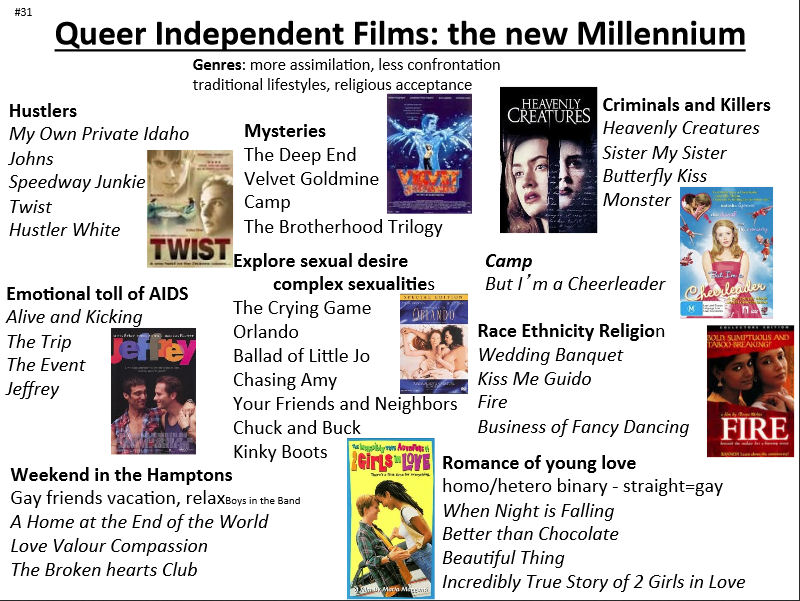
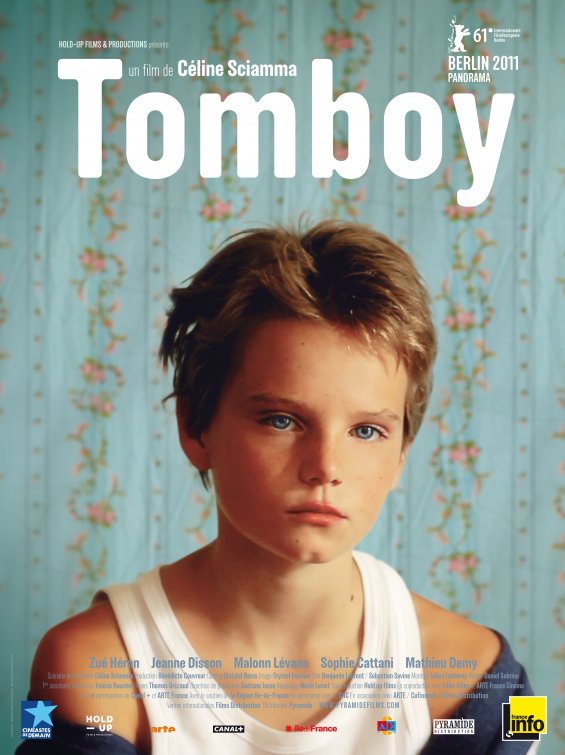
Roger Ebert's review

|
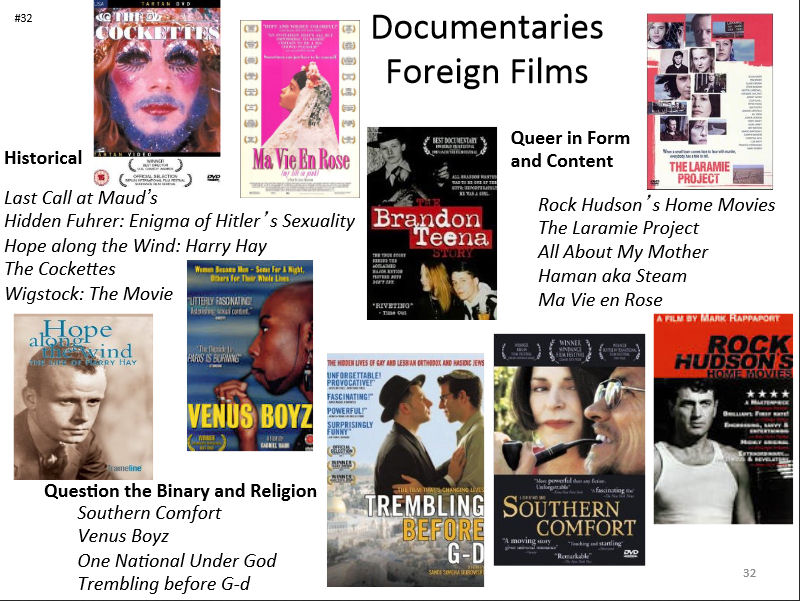
|
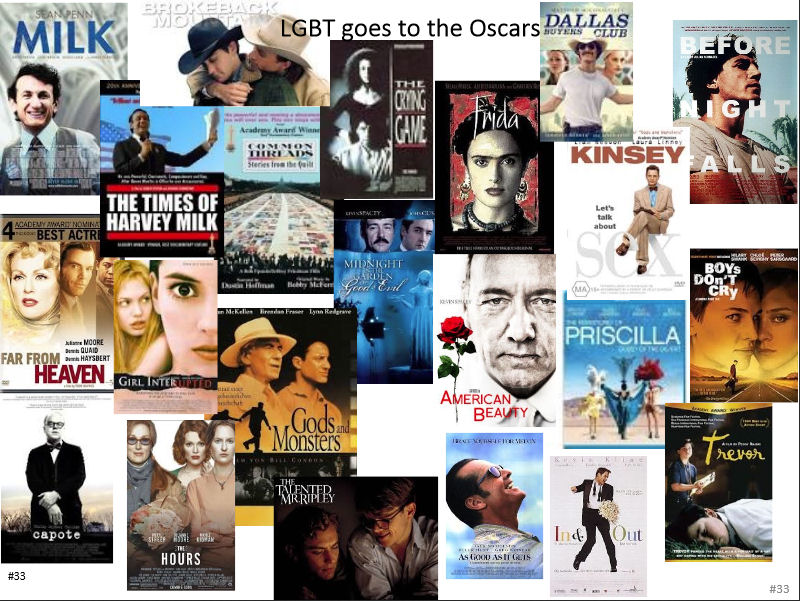
|
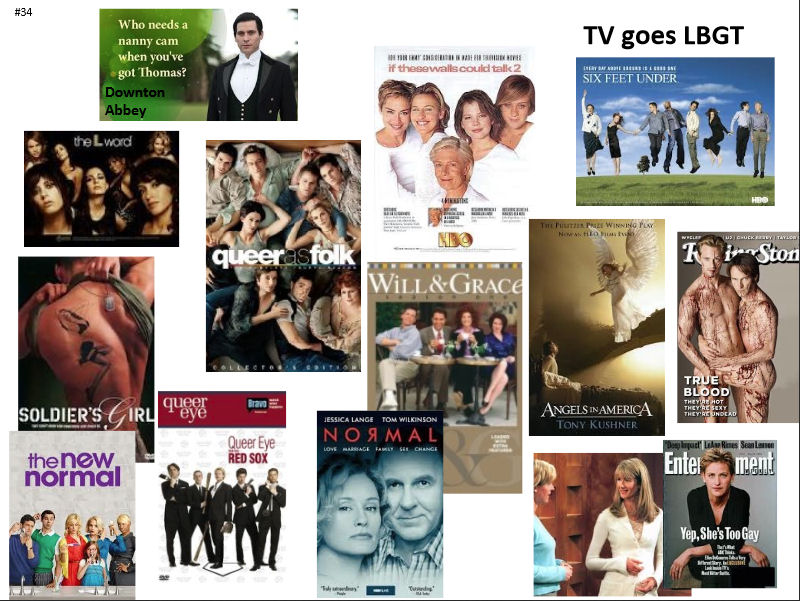
|
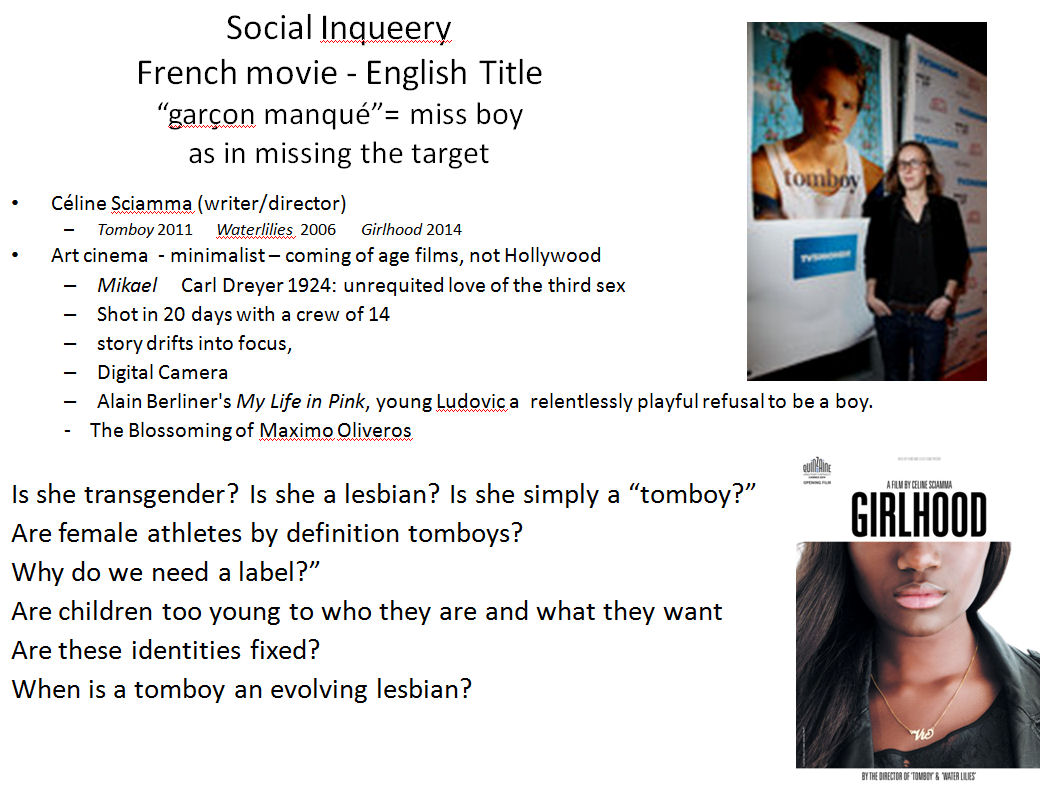
|
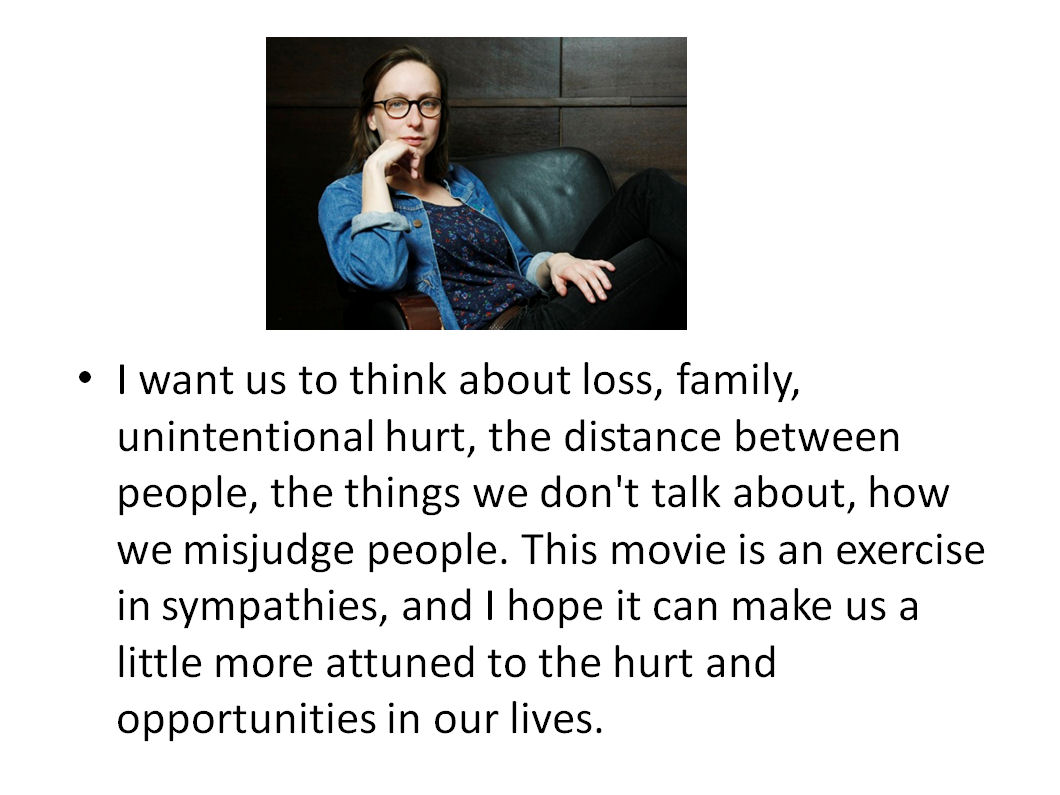
|
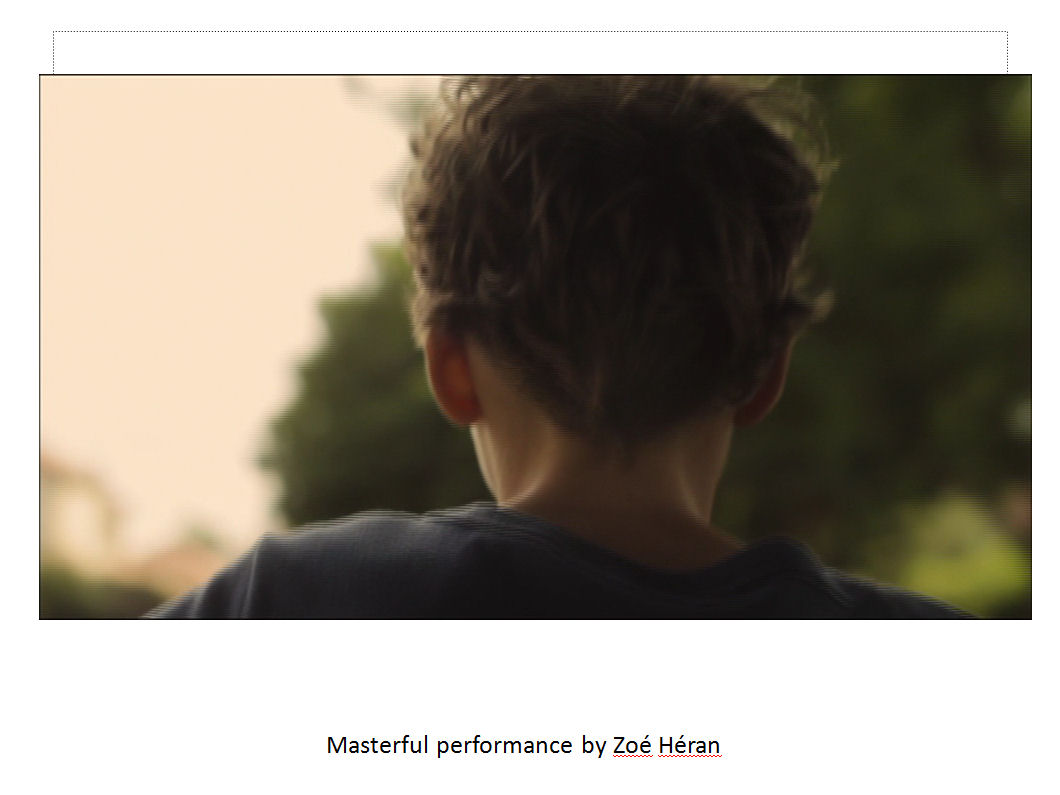
|
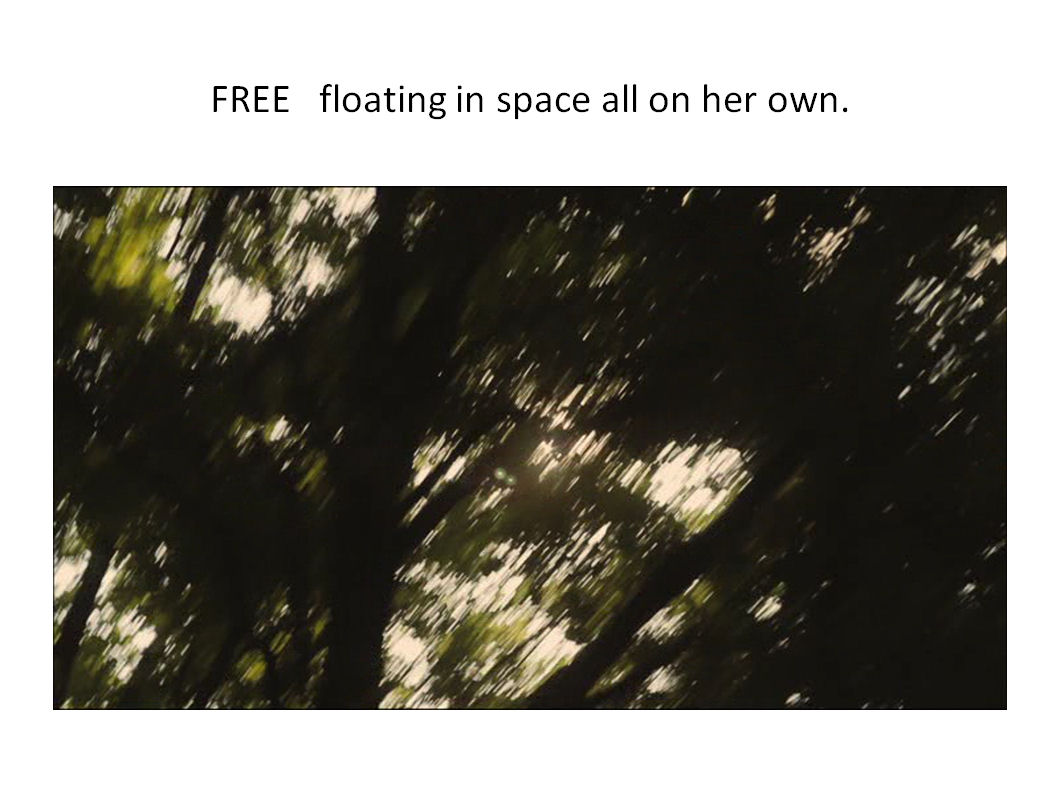
|
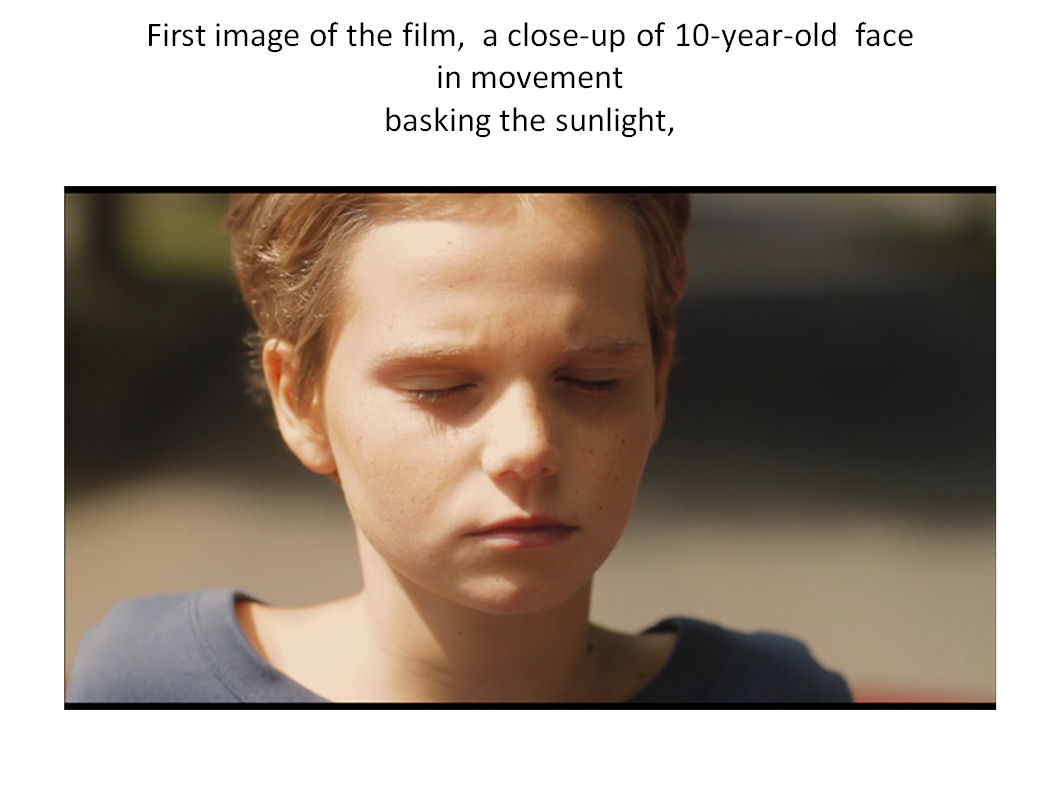
|
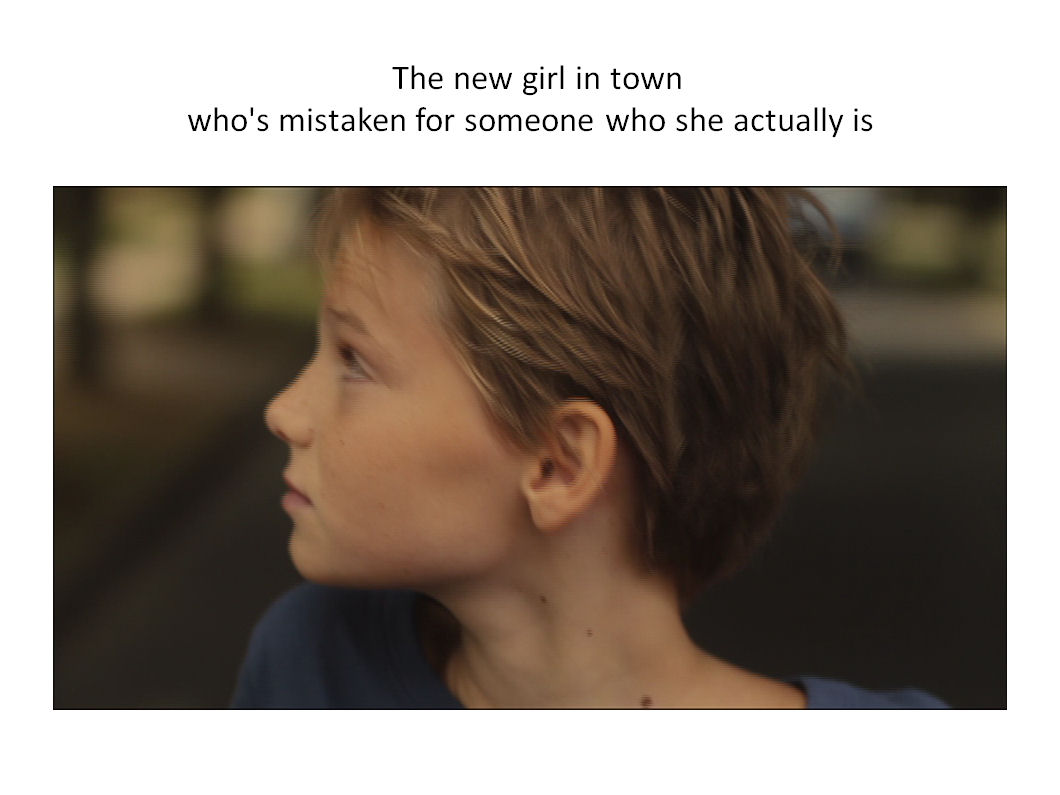
|
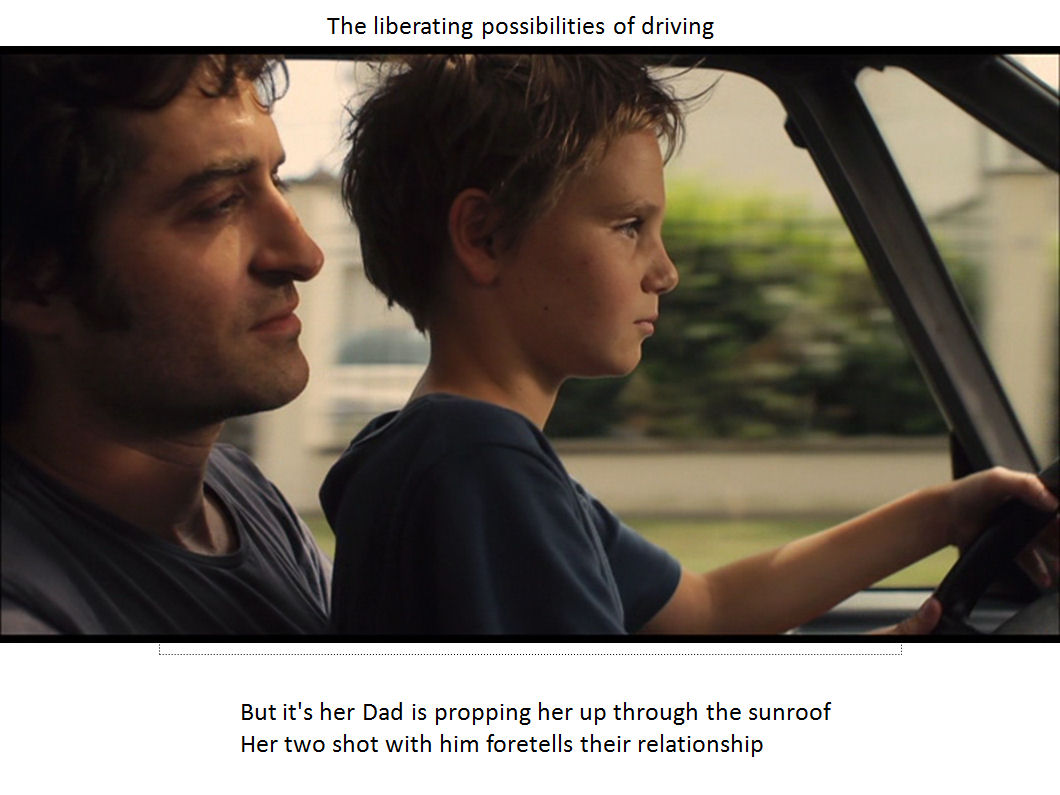
|
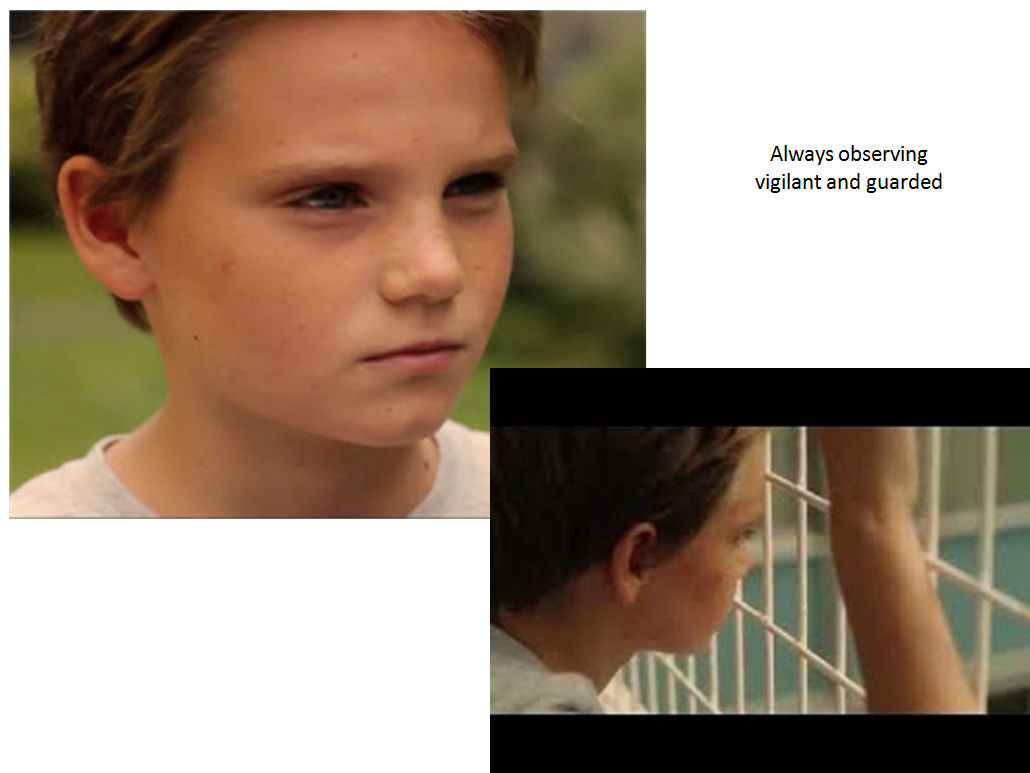
|
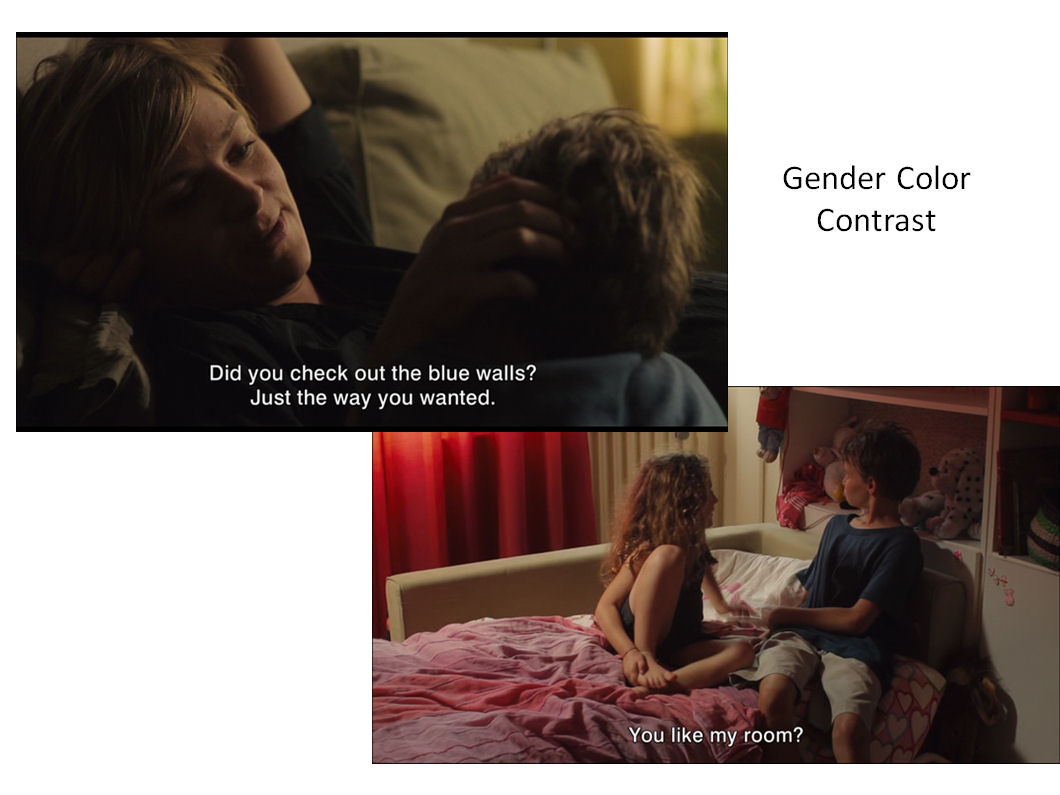
|
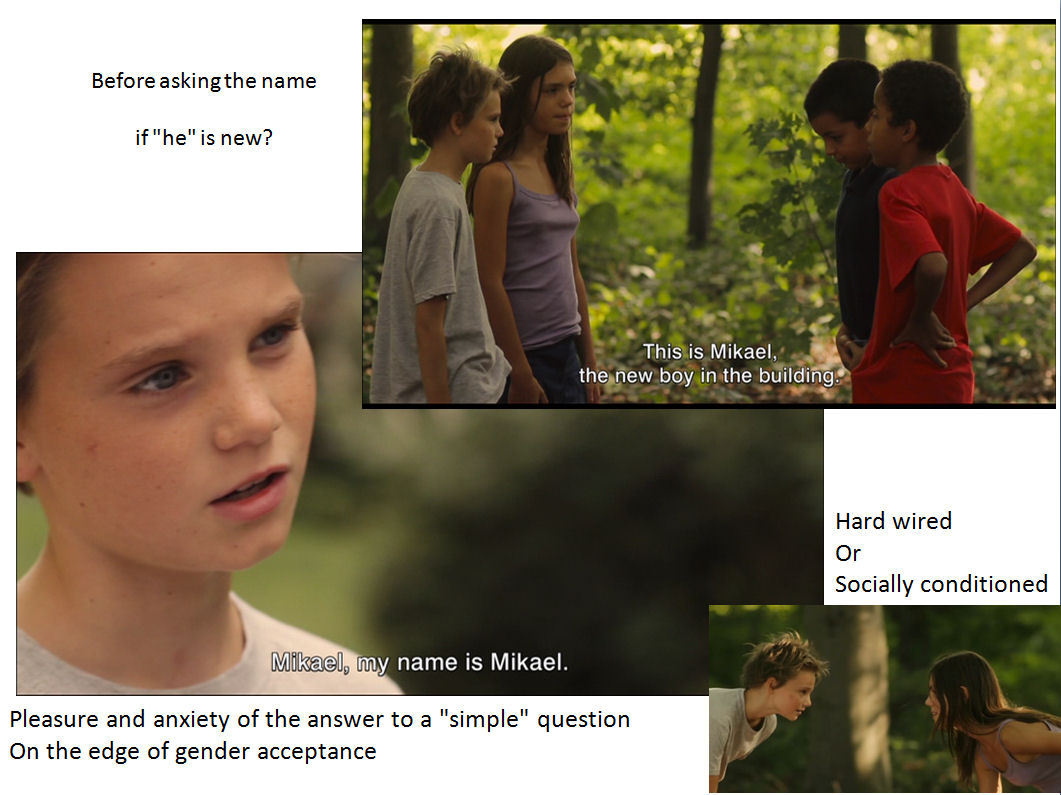
|
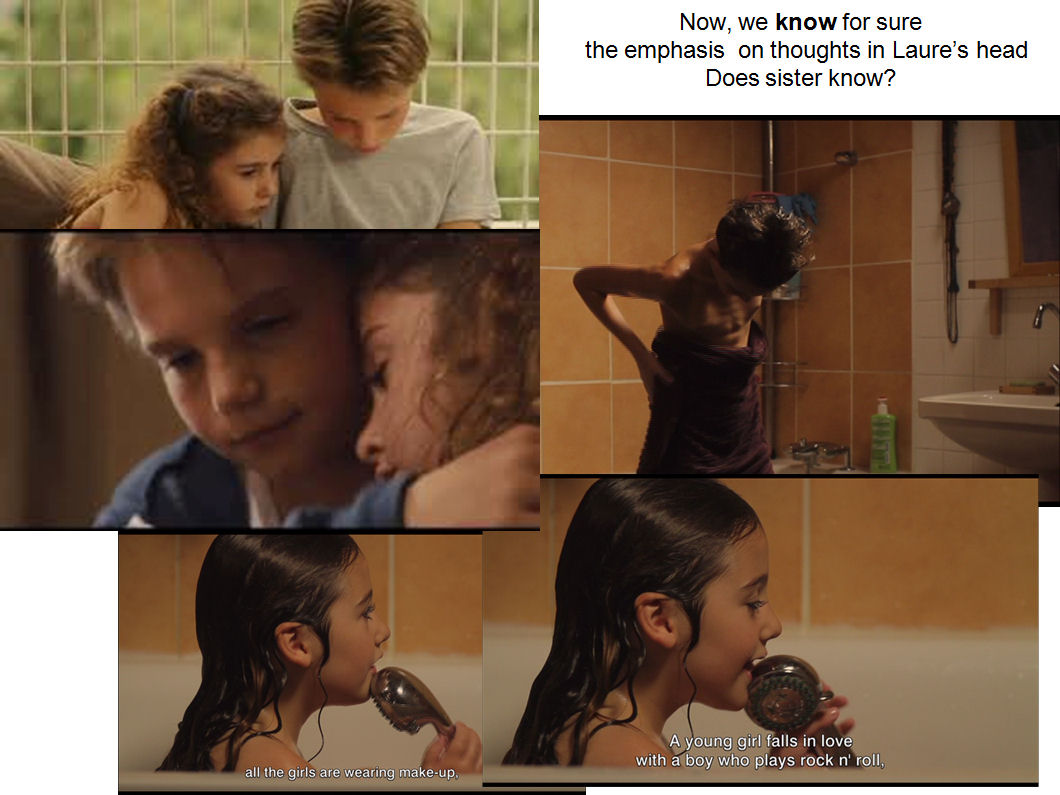
|
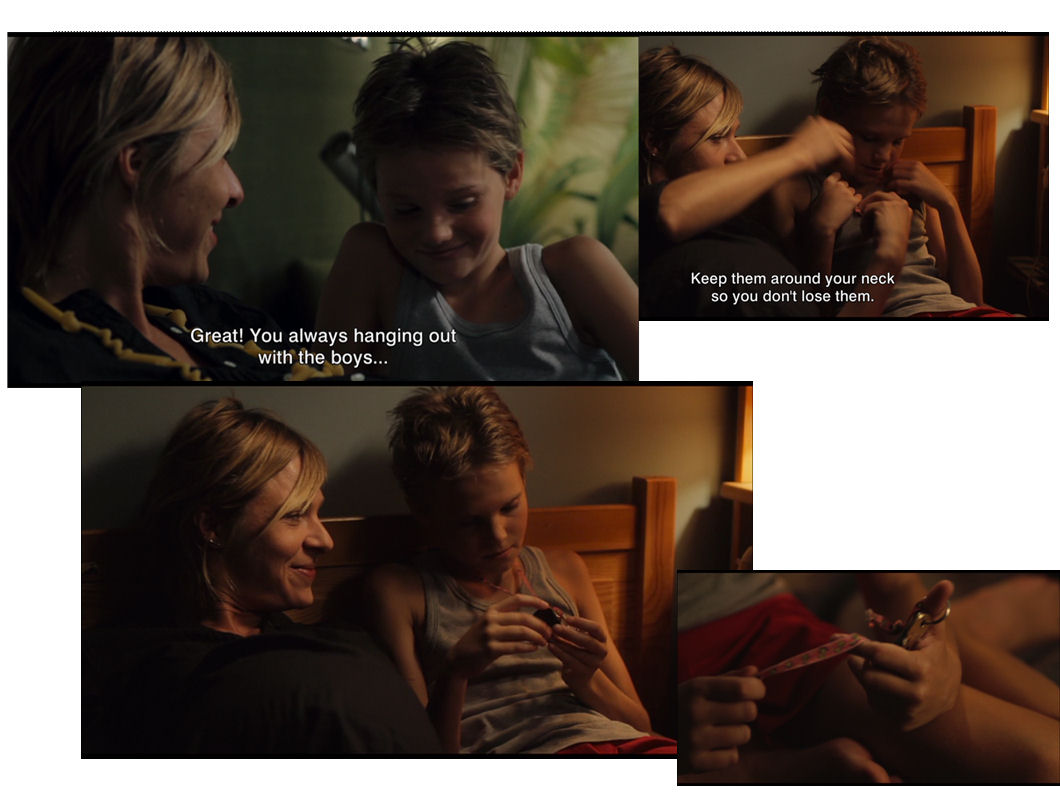
|
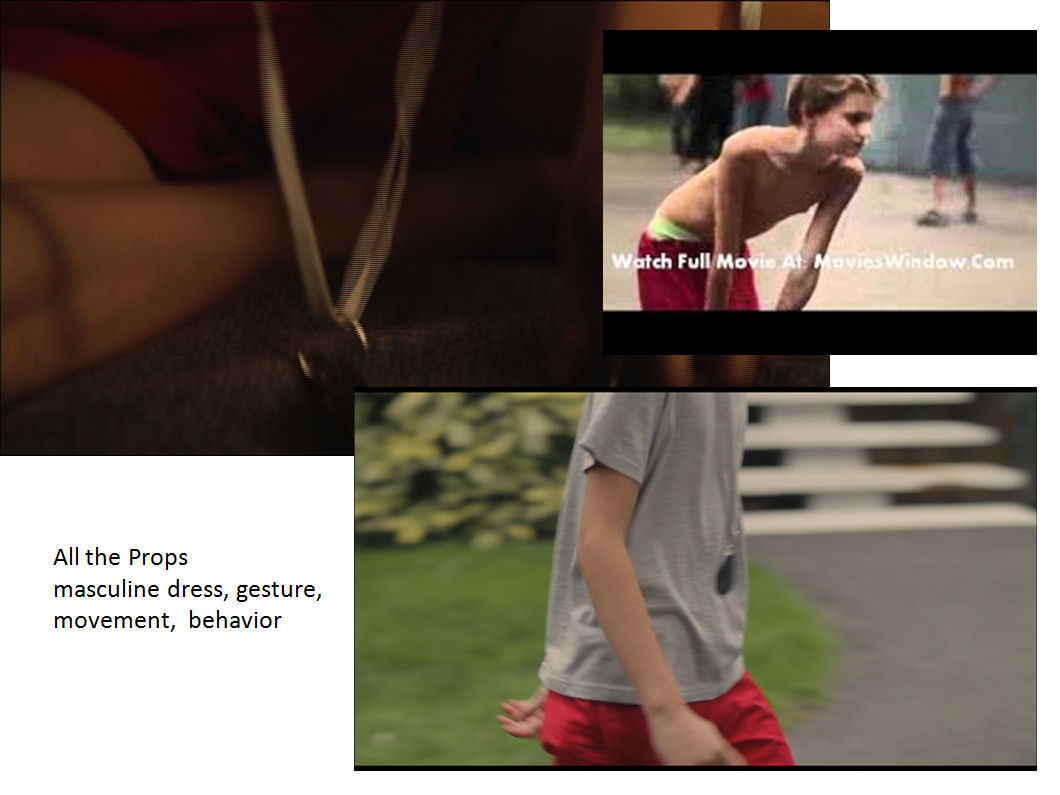
|
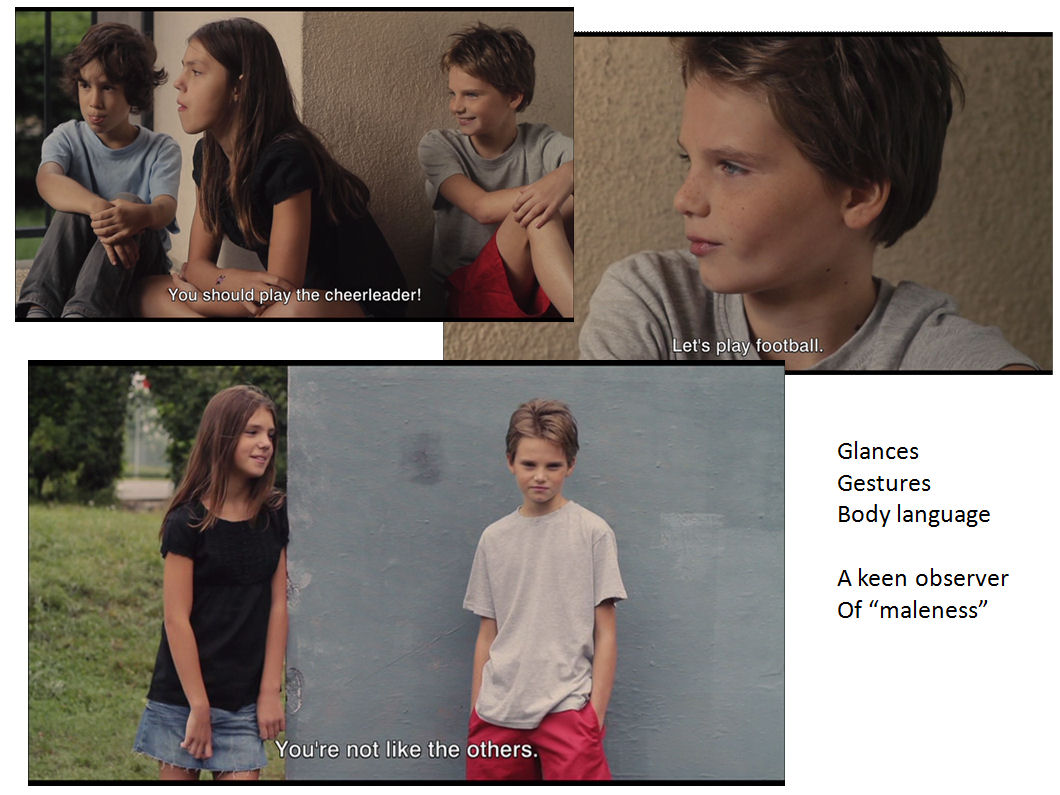
|
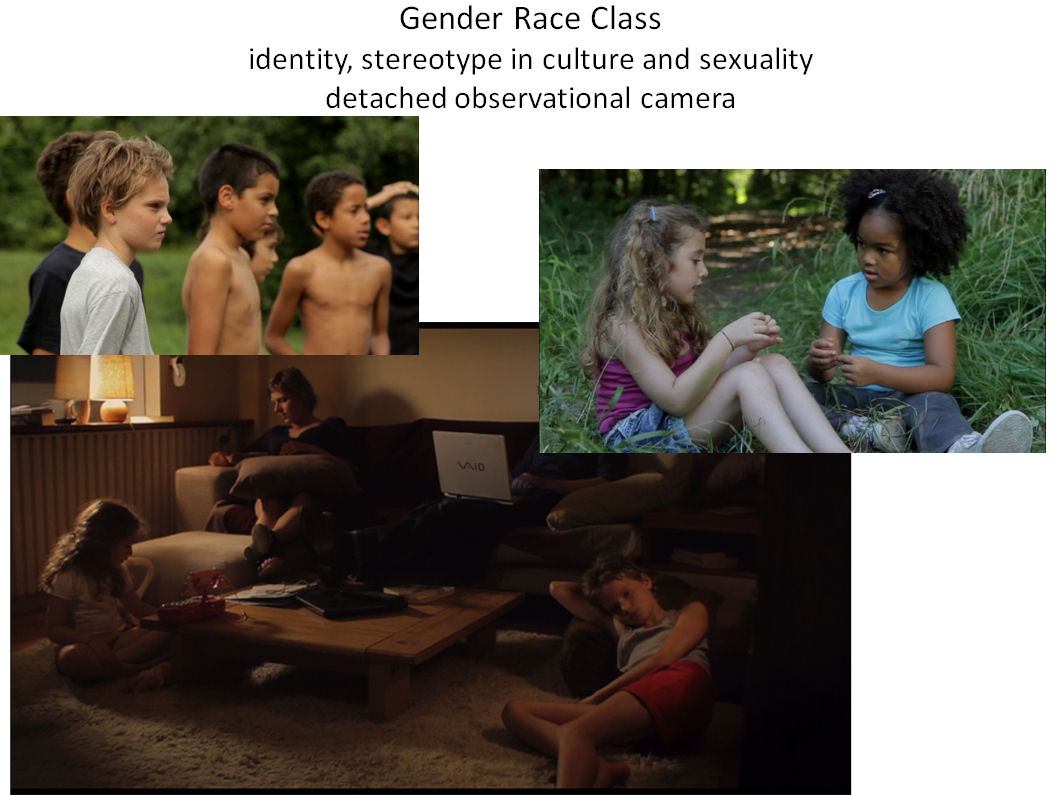
|
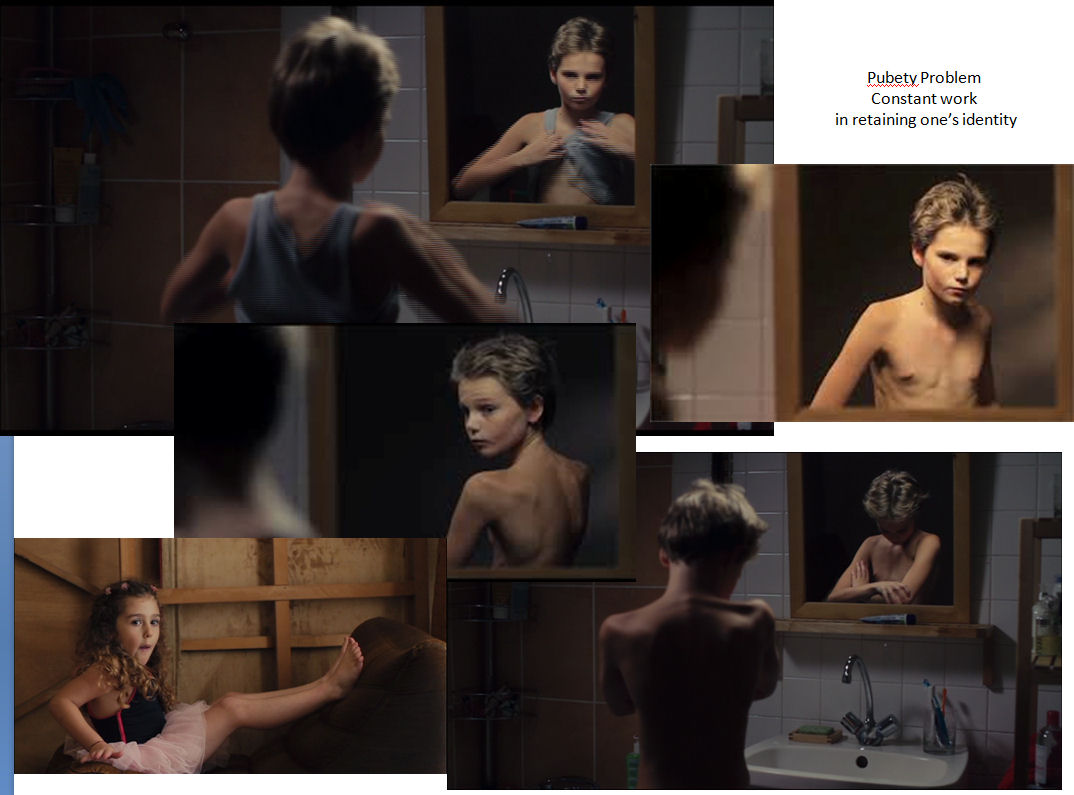
|
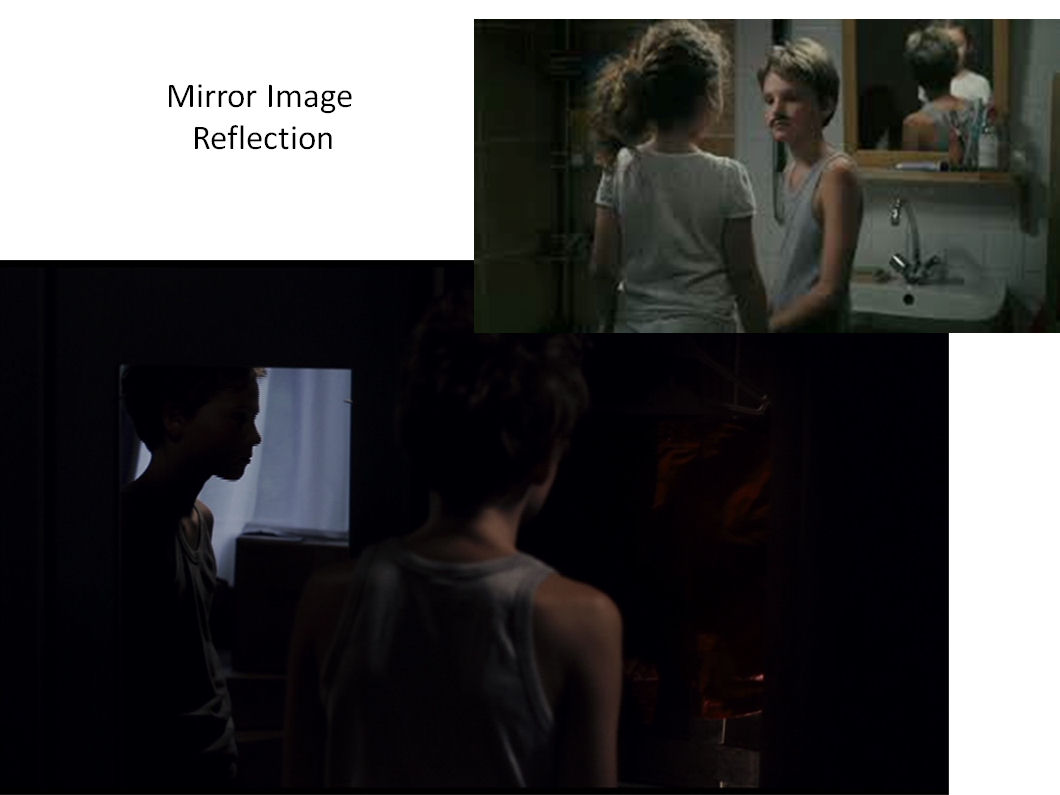
|
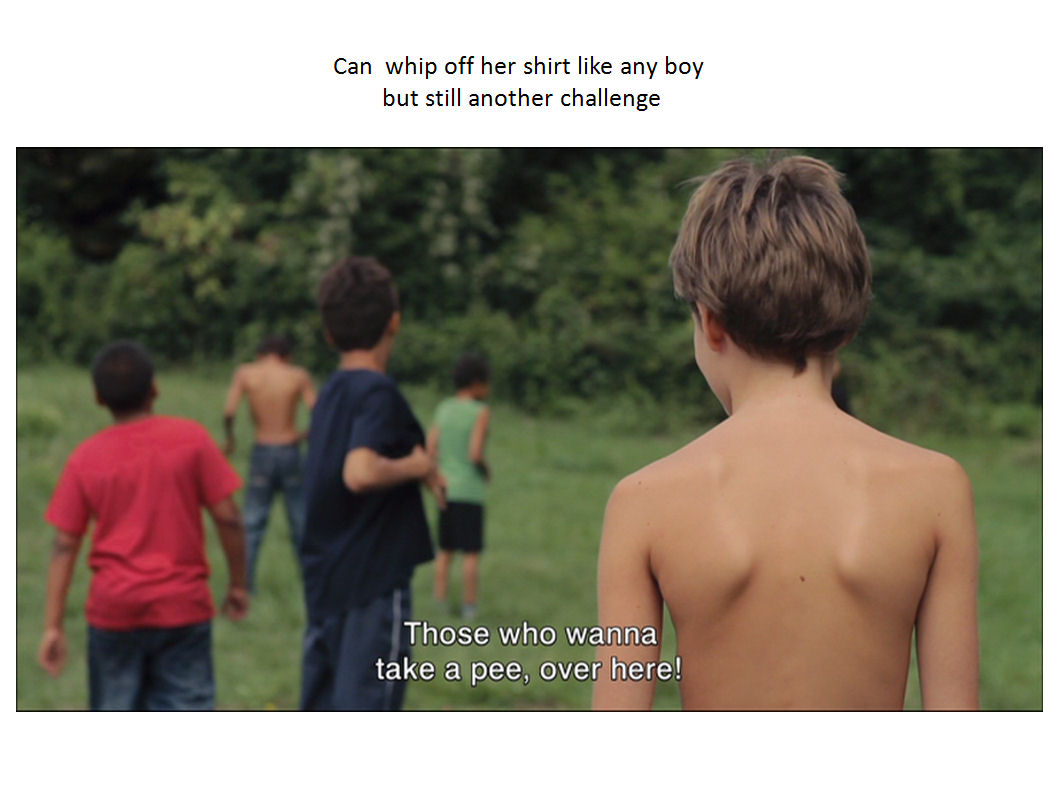
|
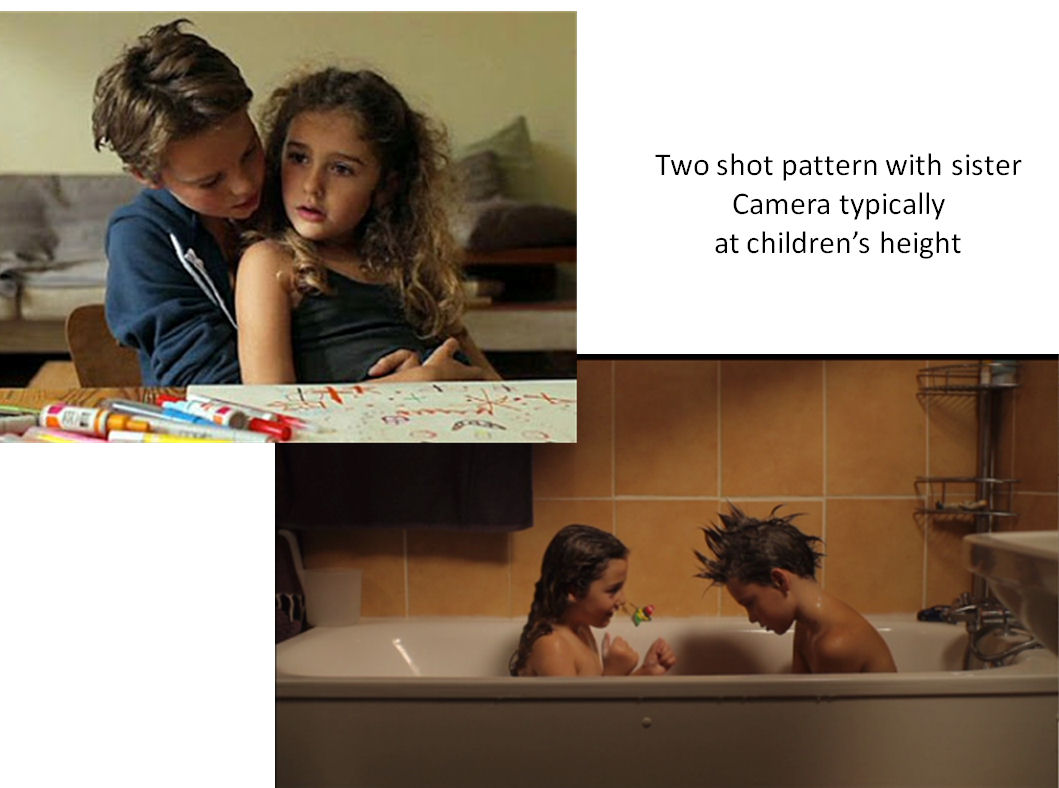
|
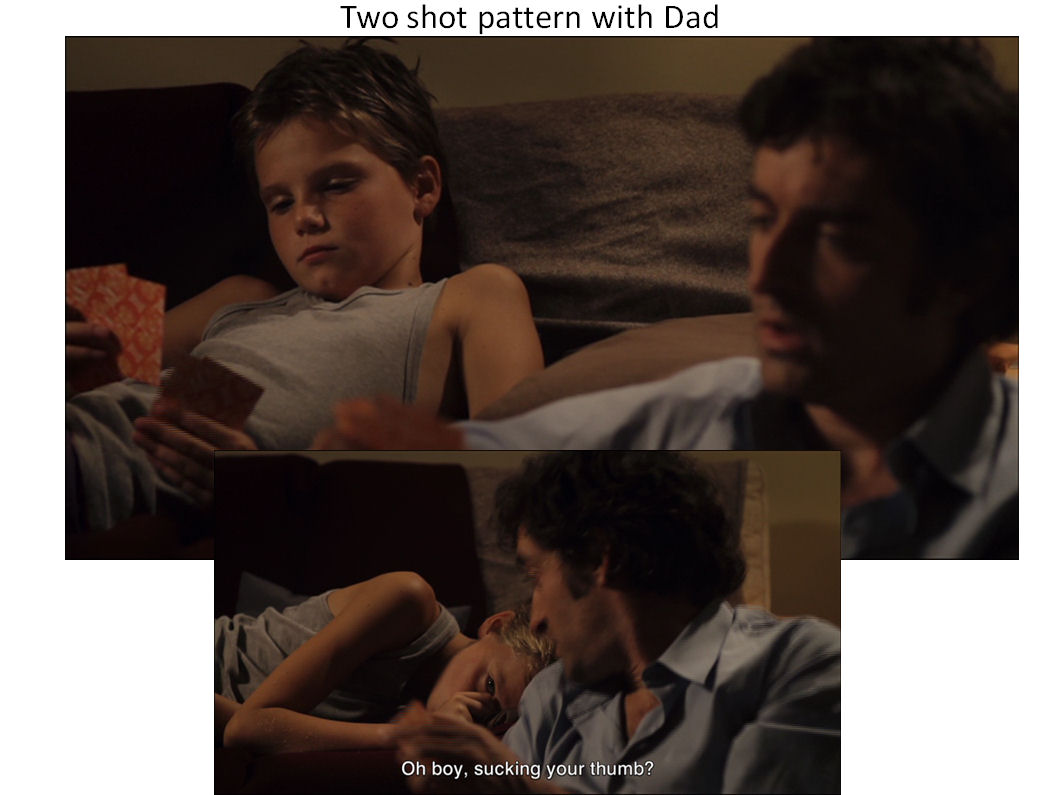
|
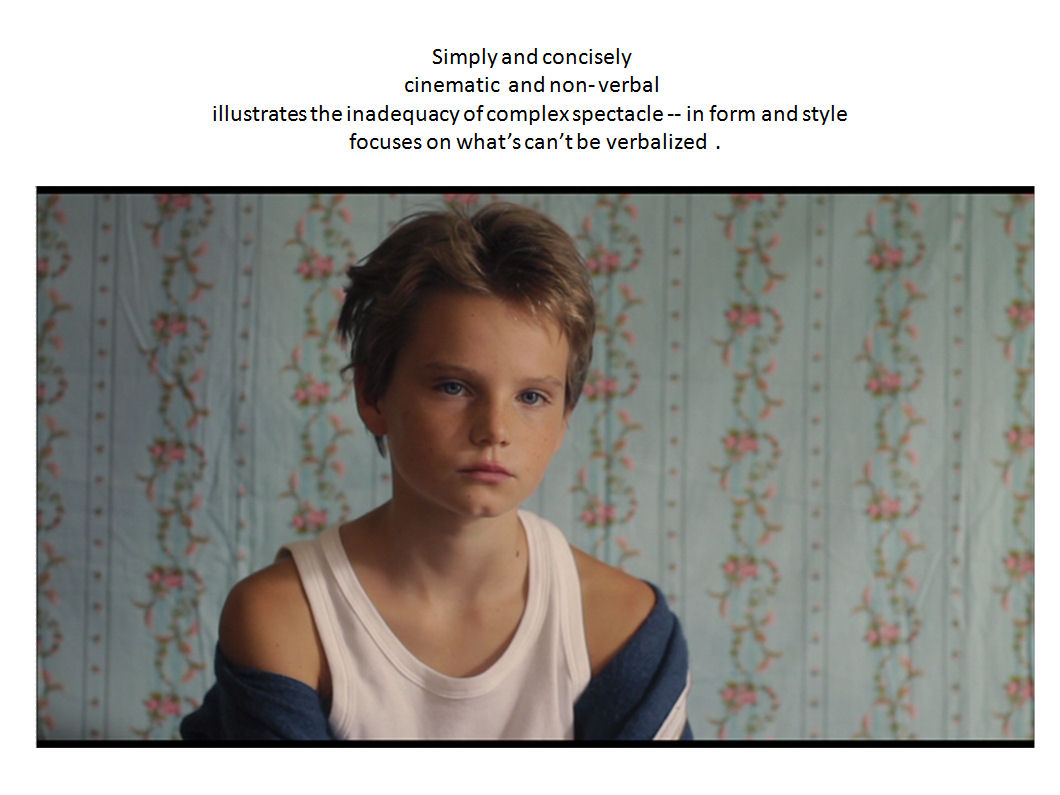
|
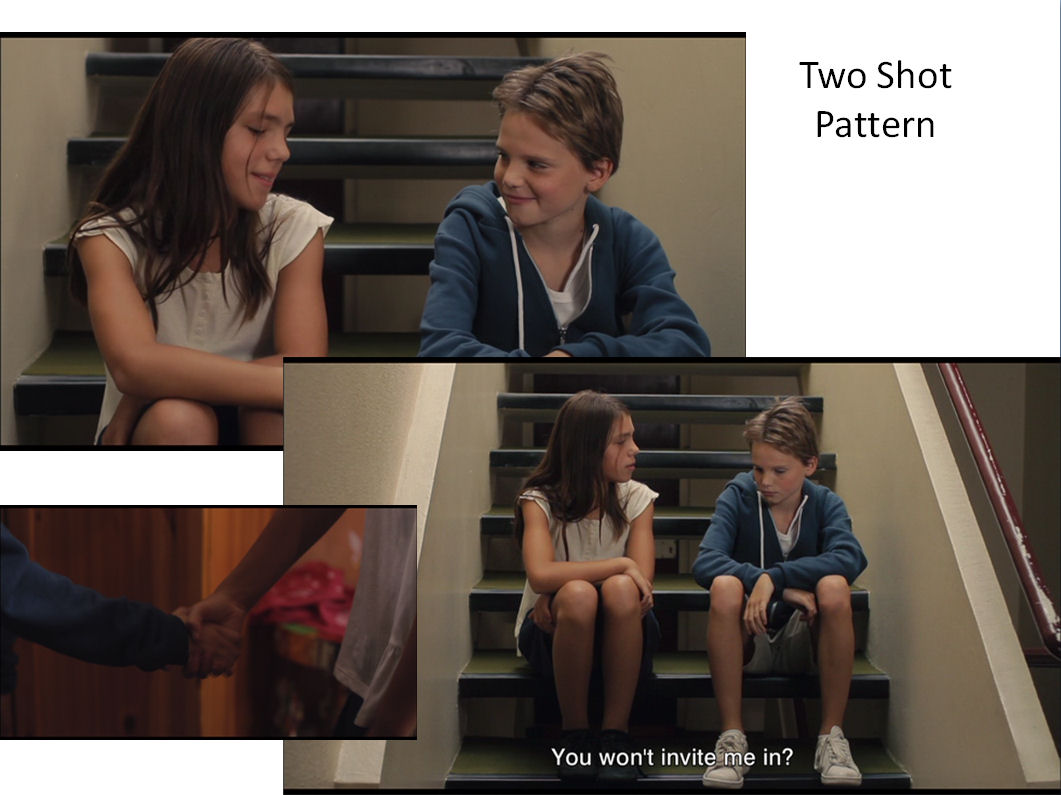
|
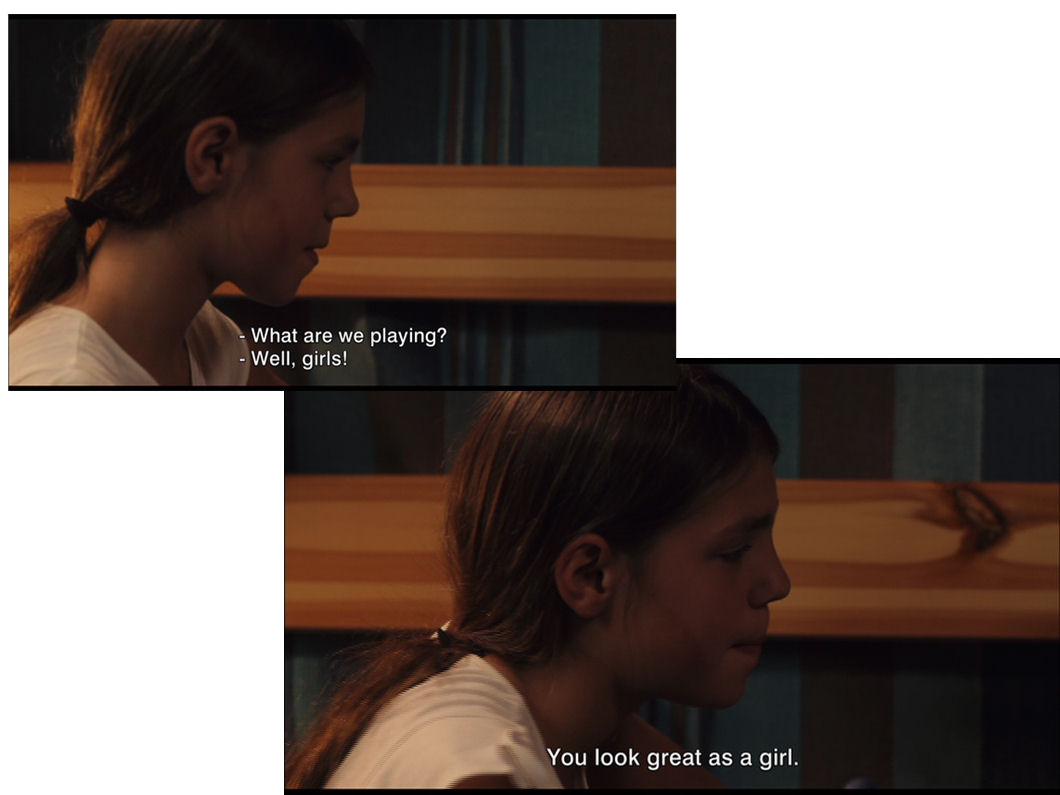
|
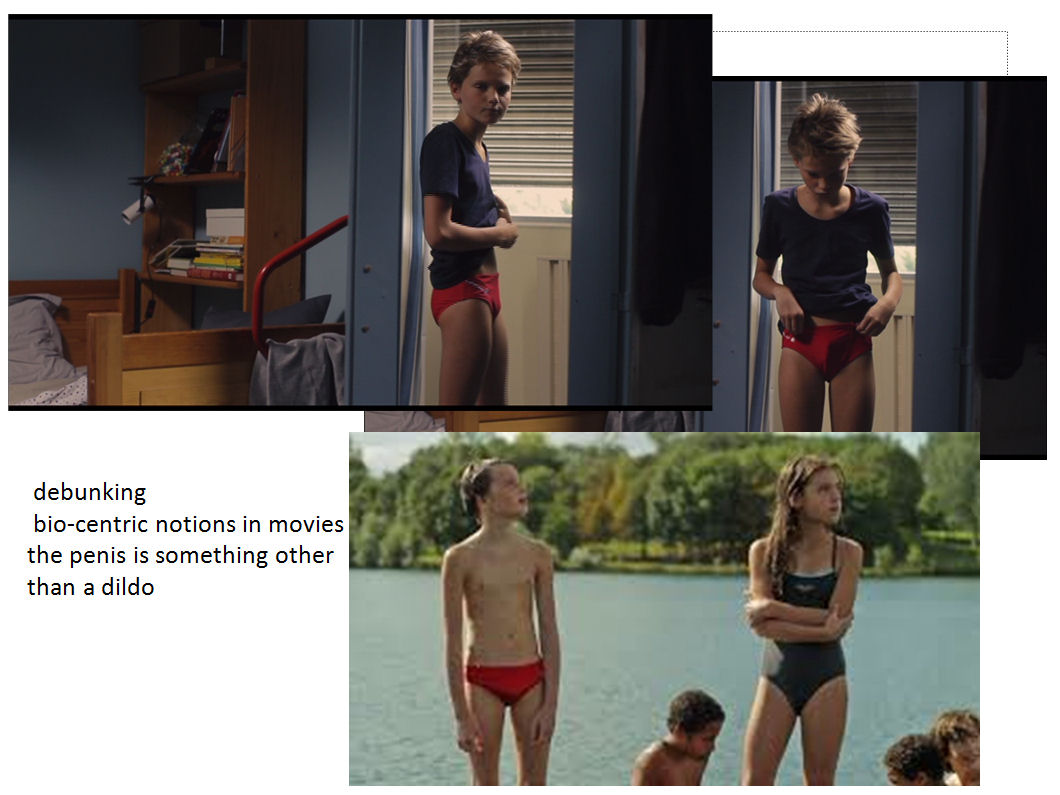
|
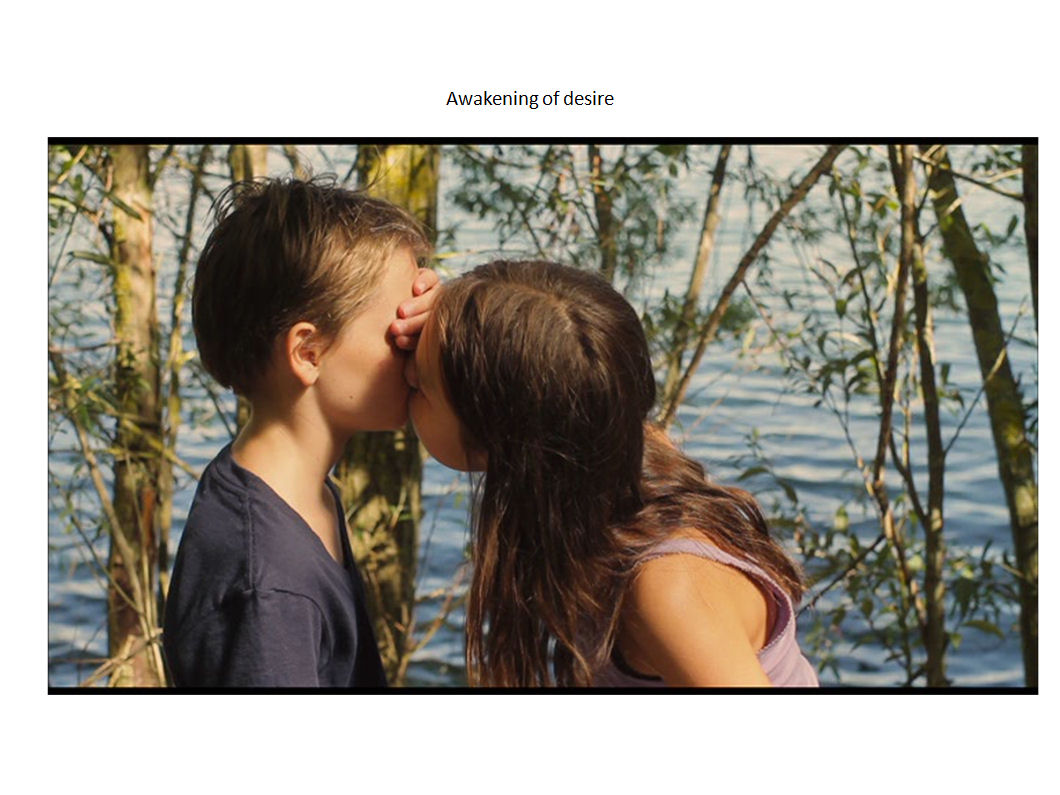
|
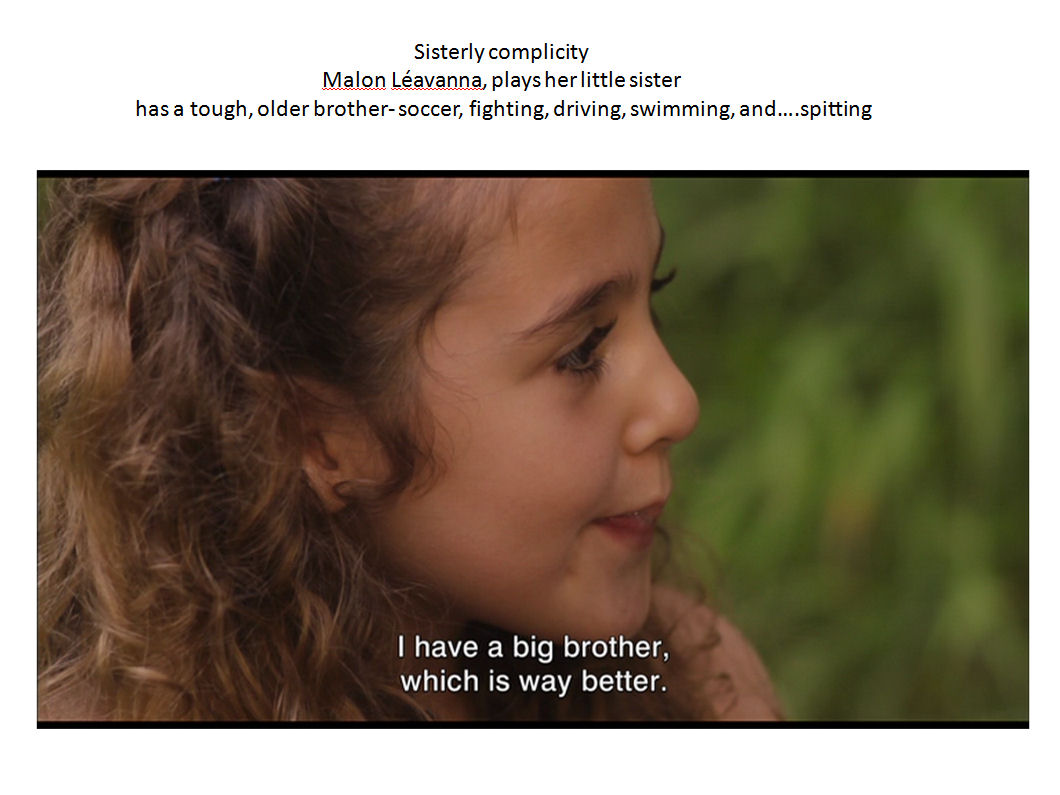
|
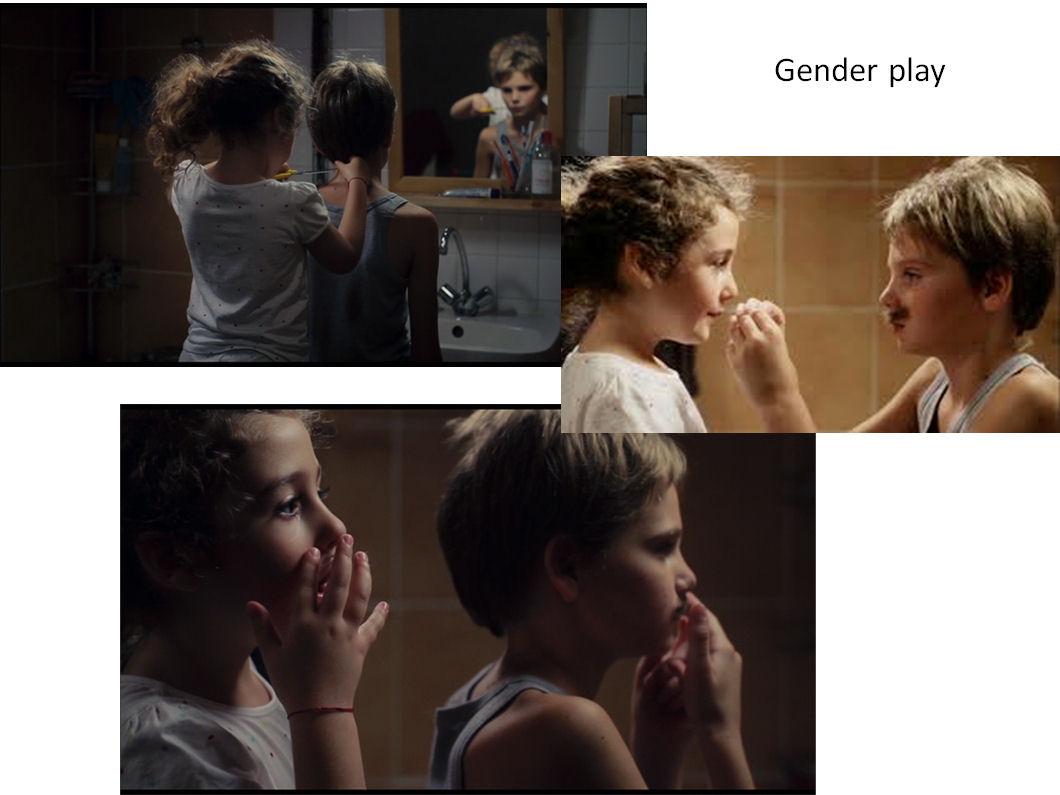
|
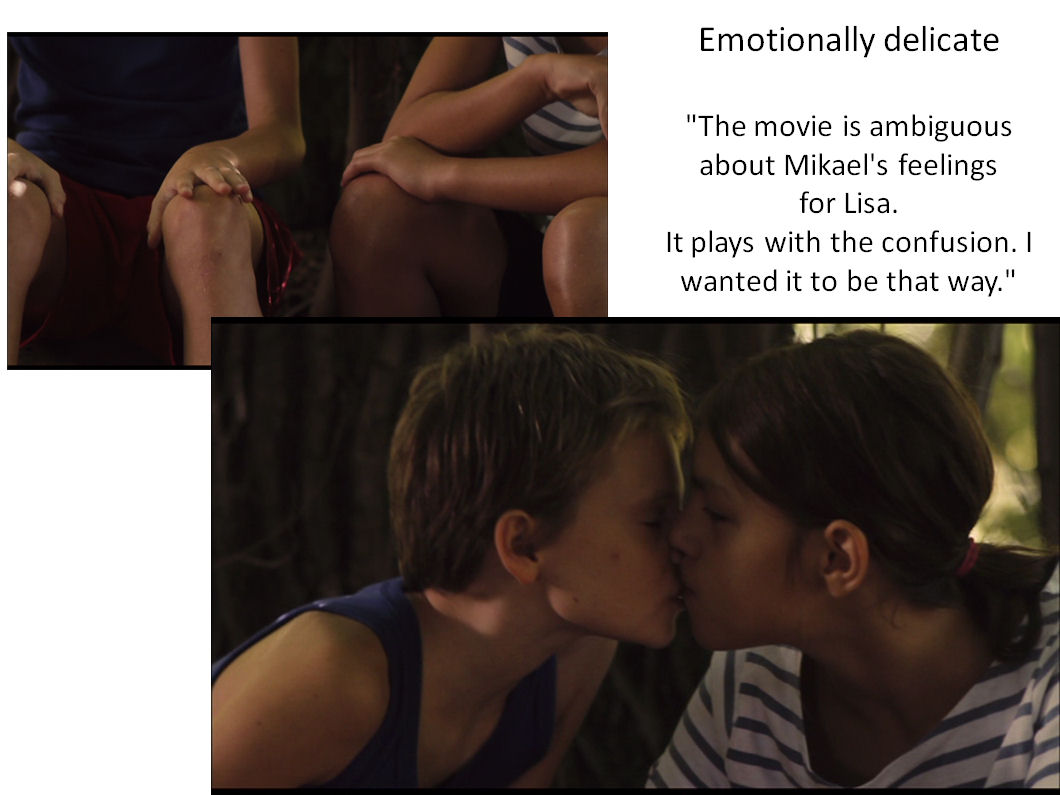
|
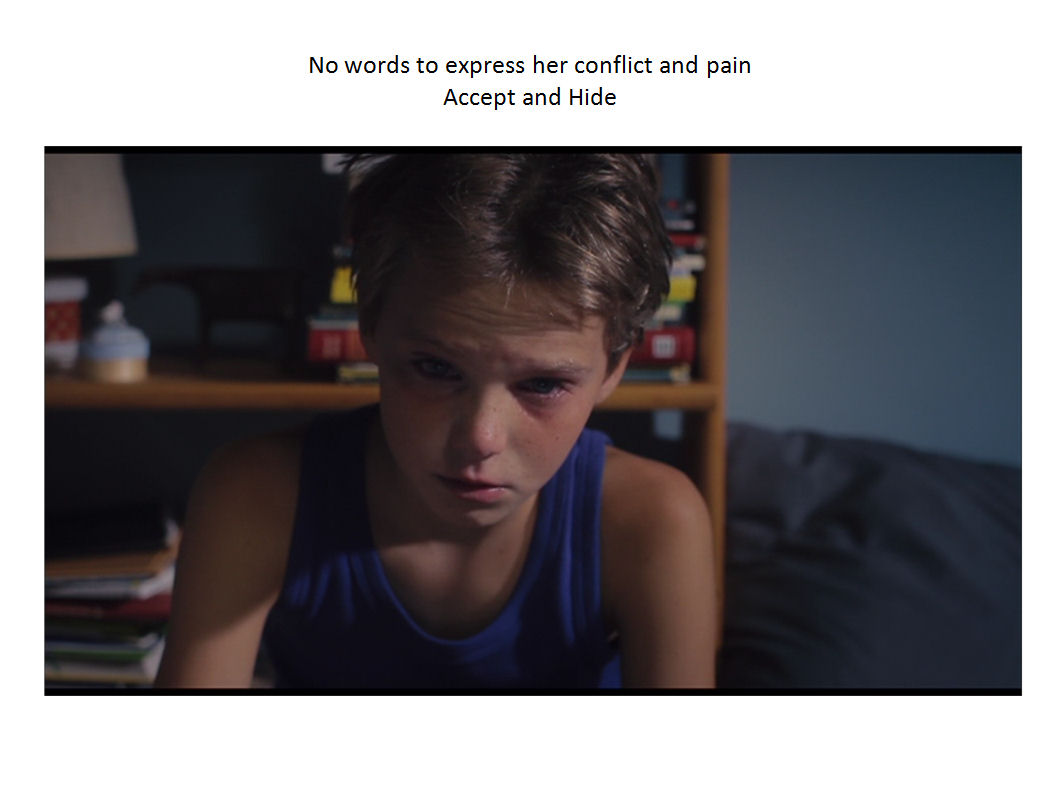
|
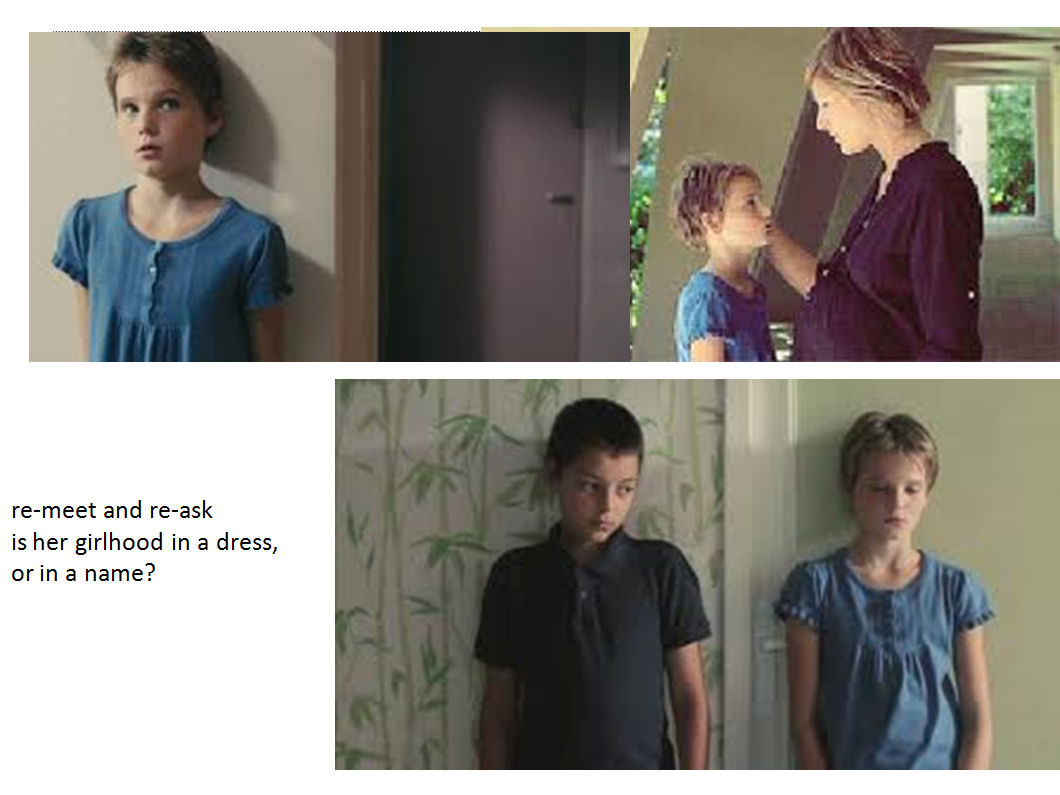
|
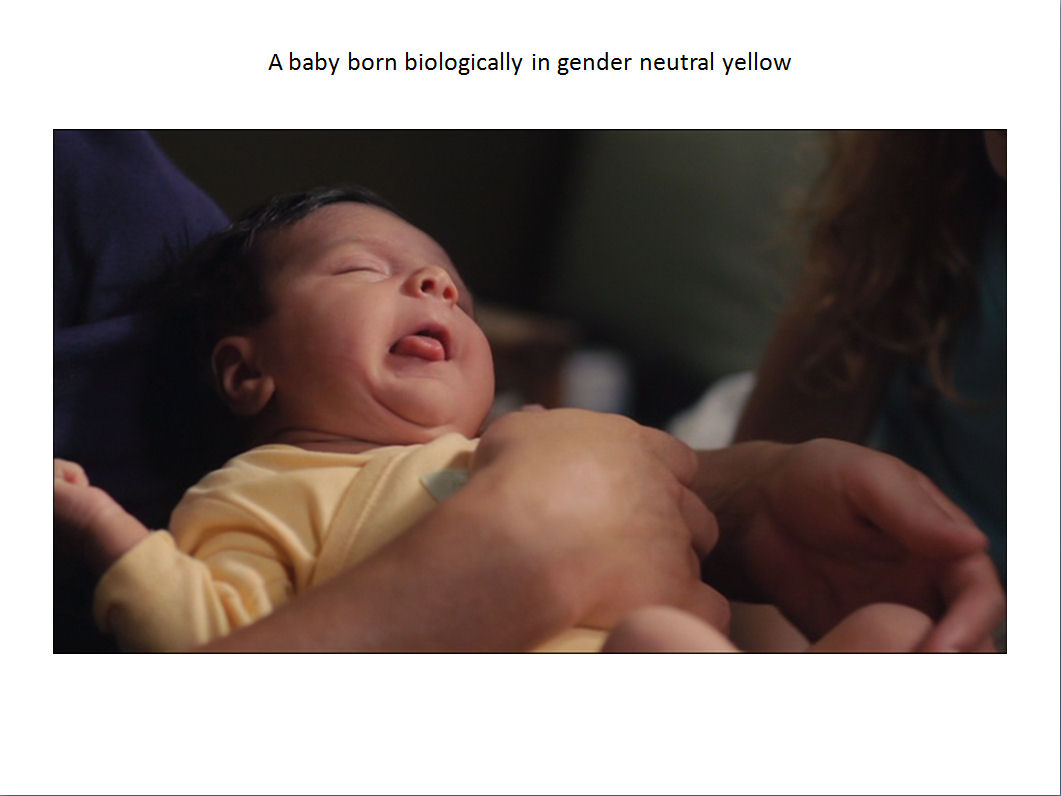
|
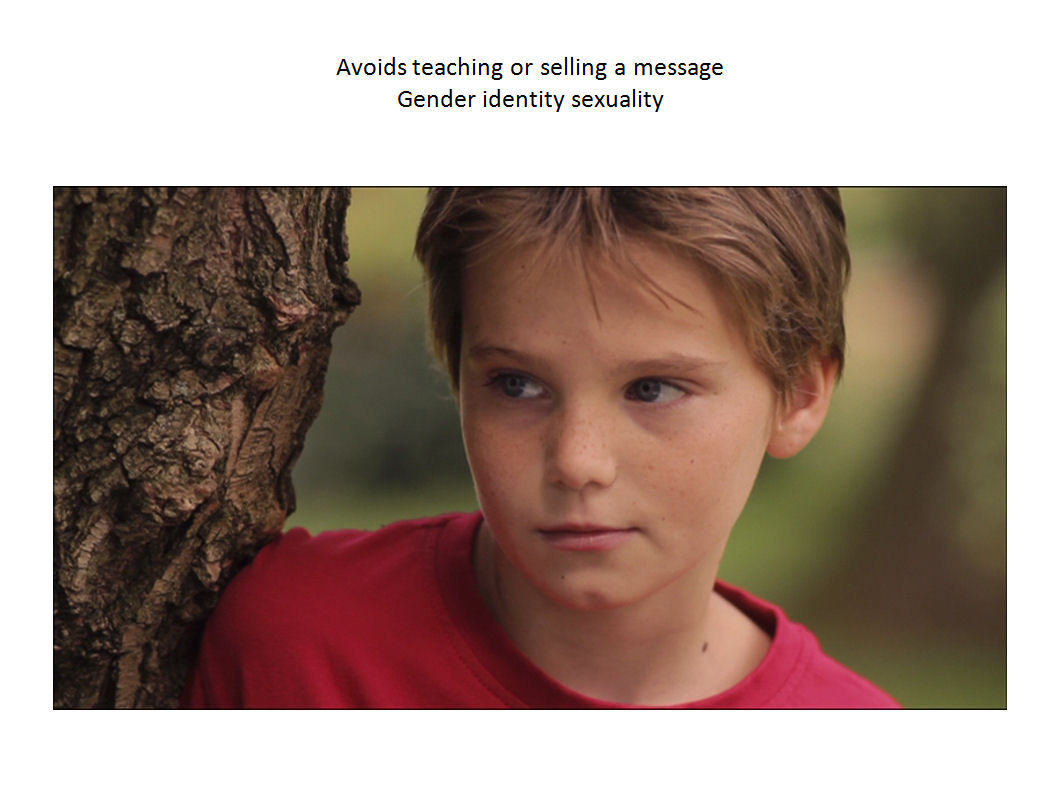
|
Trevor (1994)
14 minute short, winner of a 1994 Academy Award, introduced by Ellen

Click here to see Trevor on Ellen's web site.
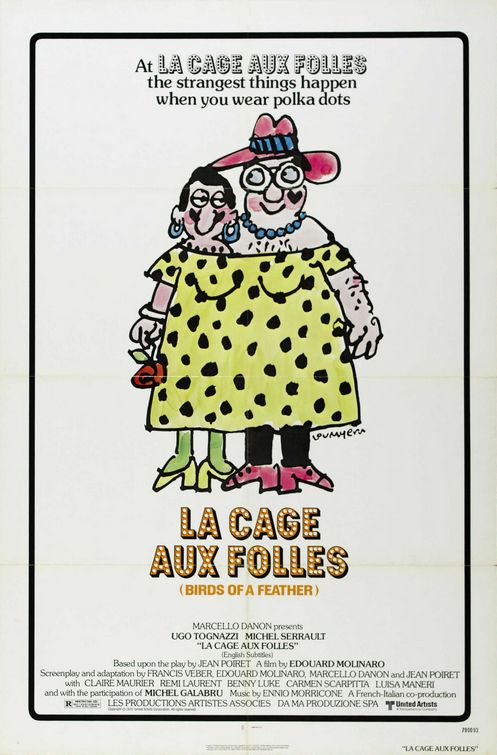
La Cage aux Folles (1978)
Description from The Advocate magazine's
The Top 175 Essential Films of All Time for LGBT Viewers:
La Cage aux Folles (1978): Leave it to the French and Italians to take the subject of homophobia and skewer it with a hilarious farce. A mainstay at big-city art houses and small-town video stores for most of the '80s, the European film production of La Cage tells the story of a gay St. Tropez couple, Renato and Albin, trying to play straight for the girlfriend of Renato's son and her conservative family. There's no shortage of stereotypes in the movie, based on a play and later remade into a Broadway musical and then the film The Birdcage, but everyone's a target. Most importany, Renato and Albin come off as lovable and very much in love. -N.B.
Scott's Comments:
It's hard to believe how long ago this movie came out. If you have only seen Birdcage, I suggest you watch the original. The stories are nearly identical, but the French setting of the original adds a lot of interest. You can safely skip the two French sequels, however.
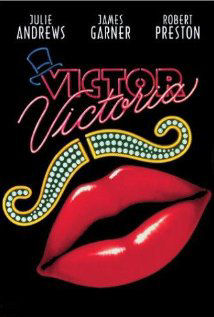
Victor Victoria (1982)
Description from The Advocate magazine's
The Top 175 Essential Films of All Time for LGBT Viewers:
Victor/Victoria (1982): Julie Andrews and James Garner star in this feel-good picture made for a mainstream market that addresses gender, homophobia, and the place of women in society - in song! Set in the 1930s and directed by Andrews's husband, the extremely gay-friendly Blake Edwards, this farce centers on Andrews as Victoria Grant passing herself off as a male tenor assisted by her fellow cohort in crime, Robert Preston as gay cabaret singer Carole "Toddy" Todd. Tough guy James Garner, much to his own confusion, falls for the young "man." Also chagrined is Garner's moll, played to perfection by Lesley Ann Warren in her naughtiest performance ever. Gender hilarity ensues. -C.H.
Scott's Comments:
I assume you've seen this movie, but if you haven't it is a complete joy. Only 4 years after La Cage aux Folles, and 11 years before Birdcage, it was a groundbreaking Hollywood A-List feature. It actually has a long history, starting as the 1933 German musical comedy movie Viktor und Viktoria. It was also remade in 1935 in Britain as First A Girl and in 1957 in Germany as Viktor und Viktoria.
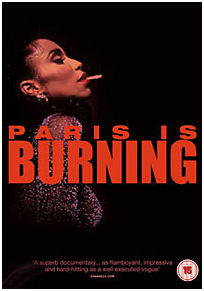
Paris is Burning (1990)
Description from The Advocate magazine's
The Top 175 Essential Films of All Time for LGBT Viewers:
Paris Is Burning (1990): This documentary shone a bright light on the African-American, Latino, and LGBT communities involved in the New York City ball culture of the mid-to-late 1980s. Directed by Jennie Livingston, Paris Is Burning brought an underground aspect of LGBT culture to the mainstream. From the use of slang ("serving realness") to unforgettable quotes ("reading is fundamental"), the film has had a lasting impact on both LGBT and mainstream pop culture. - Jase Peeples

The Adventures of Priscilla, Queen of the Desert (1994)
Description from The Advocate magazine's
The Top 175 Essential Films of All Time for LGBT Viewers:
The Adventures of Priscilla, Queen of the Desert (1994): Director Stephan Elliott's Australian film about the adventures of two drag queens and a trans woman who travel across the desert in a rickety old bus to perform a drag show found box office success around the world and a place in the hearts of many LGBT viewers as well. Starring Hugo Weaving, Guy Pearce, and Terence Stamp, the film garnered many awards, including an Oscar for Best Costume Design. Today, the film is considered by many to be an LGBT kitsch comedy classic, loved as much for its over-the-top characters as its unflinching look at life through a queer lens. -J.P.
Scott's Comments:
This movie is included in the OLLI "Happy Gay Movies" Study Group that Casey Sutherland and I will present from April 14 to June 2, 2015.
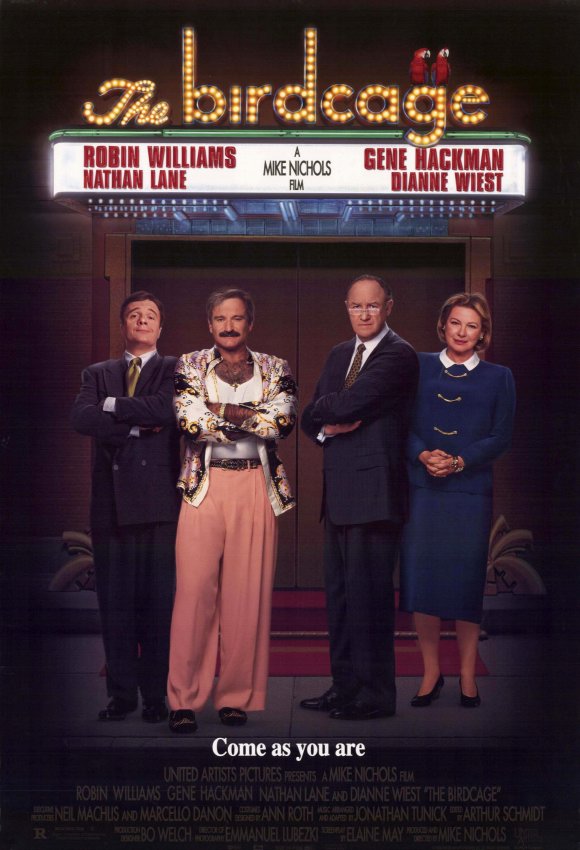
The Birdcage (1996)
Description from The Advocate magazine's
The Top 175 Essential Films of All Time for LGBT Viewers:
The Birdcage (1996): This movie is wackadoo-silly, but it holds a place in my heart for some reason. Elaine May wrote this very '90s, very American adaptation of the Franco-Italian play and film La Cage aux Folles, while her old comedy partner Mike Nichols directed a pretty damn great cast - Nathan Lane, Robin Williams, Gene Hackman, and Dianne Wiest, with Christine Baranski, Hank Azaria, and Calista Flockhart. While it might be too campy, too silly, and too much for audiences today, The Birdcage is a movie with a heart and a soul, which probably helped to change a couple of hearts and minds belonging to parents as conservative as the senator Gene Hackman plays. -M.G.
Scott's Comments:
This is another movie that we assume you've already seen. If for some reason you haven't, watch La Cage Aux Folles (description above) first, then watch this remake. It is a study on how to successfully transfer a movie from one culture to another. They got it right in almost every way.

ma vie en rose (My Life in Pink) (1997)
Description from The Advocate magazine's
The Top 175 Essential Films of All Time for LGBT Viewers:
Ma Vie en Rose (1997): This tender French film stars an impressive young Georges Du Fresne as Ludovic, a transgender child who can't wait to grow up to become a beautiful woman. Much to the dismay of Ludovic's parents, the 7-year-old proudly twirls in frilly dresses, and is convinced that the future holds a happy marriage to a neighborhood boy. Distraught by their own confusion and local disapproval of Ludovic's nonconformity, the family sends their child to see a psychiatrist, hoping to turn the child into the son they believe he should be. But in an important shift, the psychiatrist affirms Ludovic's identity as a "girlboy" and helps the parents come to terms with how best to support their child, demonstrating an affirmative position that was decades before its time. -S.B.
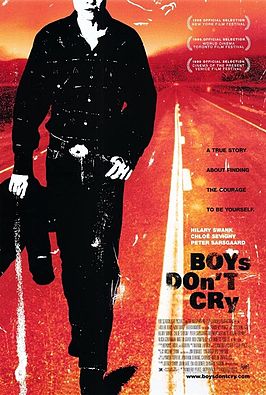
Boys Don't Cry (1999)
Description from The Advocate magazine's
The Top 175 Essential Films of All Time for LGBT Viewers:
Boys Don't Cry (1999): It's easy to dismiss this as an "important" film, but Boys Don't Cry, based on the true story of the murder of Brandon Teena, a young trans man killed in Nebraska, is actually an incredibly good one as well. For a film that ends in such an atrocity, it has a breezy romanticism as we meet the flirty Brandon (played by Hilary Swank, in a role that won her an Oscar and made her career) and weary Lana, the girl he falls in love with. Brandon knows little of other trans people, of hormones or gender identity or even the kind of (sadly still limited, but at least talked about) rights trans people have today. But he's young and in love and troubled, because of having no social safety net, living in an impoverished community, and hiding his birth-gender assignment (and in the film, the lack of medical hormones is the linchpin that eventually leads to his death). Watch it with a big box of Kleenex and a sense of injustice. -D.A.M.
Scott's Comments:
One of the great LGBTQ movies of all time, but be forewarned that the end contains some of the hardest scenes to watch in movie history. If you don't want to go through that, at least try the documentary immediately below.
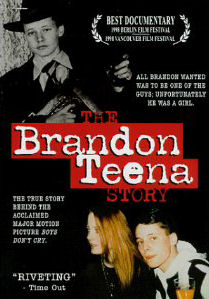
The Brandon Teena Story (1998)
Scott's Comments:
Excellent documentary covering the same story as Boys Don't Cry. Watch them both if you can.
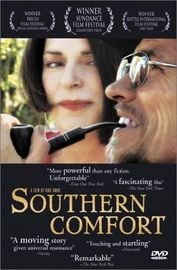
Southern Comfort (2001)
Description from The Advocate magazine's
The Top 175 Essential Films of All Time for LGBT Viewers:
Southern Comfort (2001): One of the saddest trans documentaries is also one of the best as it follows the last year of Robert Eads's life, the complications that transition brings for FTMs and the ways in which all LGBT have made family. A transgender man, Eads was battling ovarian cancer and was turned down by almost two dozen doctors who were afraid that treating a trans man with cancer would harm their reputations. By the time a doctor would care for him, the cancer was too advanced for his life to be saved. Still, we see the man and his partner, trans woman Lola, and their chosen family fight fear, discrimination, and stigma to be who they are and live with dignity. Eads's last appearance was at the famed trans gathering Southern Comfort, as he died shortly after. -D.A.M.
Scott's Comments:
Be careful not to confuse this movie with a macho action flick made in 1981 with the same name.
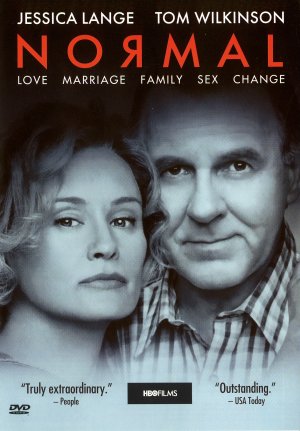
Normal (2003)
Scott's Comments:
This HBO movie was a leading contender for the course during our early planning. It is set in the farm country around Normal, Illinois, and features wonderful performances by Jessica Lange and Tom Wilkenson. After decades of marriage, the husband (Tom Wilkenson) finally, and gradually, comes to terms that he is transgendered. The movie is as much about his wife (Jessica Lange) and the community as it is about the husband. Everything rings true. Highly recommended.
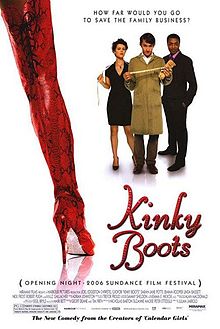
Kinky Boots (2006)
Scott's Comments:
This British movie is the basis of the Broadway musical of the same name. An established family business making high quality men's shoes is inherited by the nerdy son, Charlie Price, just as it is about to go under. He serendipitously meets a cabaret transvestite, Lola, and hatches the idea of making ladies boots in men's sizes for drag performers. Although this movie is arguably neither gay nor transgendered, it portrays the reactions of Charlie and the workers in a perceptive, entertaining, and delightfully British way. Plus it is a decent movie musical in itself.
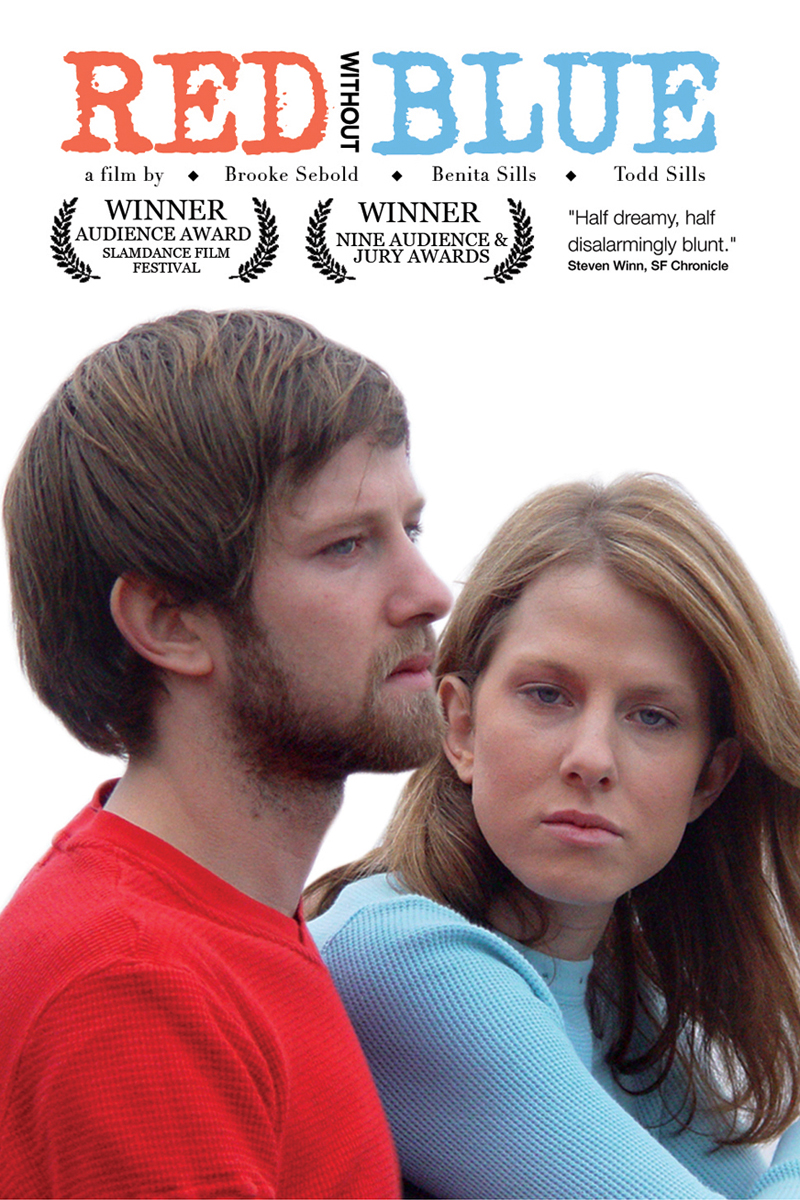
Red Without Blue (2007)
Description from The Advocate magazine's
The Top 175 Essential Films of All Time for LGBT Viewers:
Red Without Blue (2007): Directed by Benita Sills and Brooke Sebold, Red Without Blue tells the true story of Mark and Alex Farley, twins who grew up in a conservative area of Montana. The film, which won the Audience Award for Best Documentary at the 2007 Slamdance Film Festival, recounts the childhood of the siblings as they navigated coming out, family, bullying, and pedophilia. It also trains a lens on their present-day search for identity, as Mark embarks on his first serious relationship with another man and Alex, who has adopted the name Claire, considers gender-reassignment surgery. By weaving together past and present, Red Without Blue creates a rich and complex portrait of an American family. -D.R.
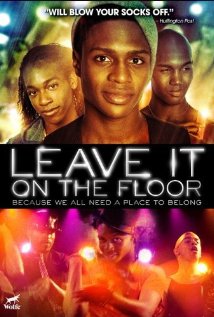
Leave It On The Floor (2011)
Scott's Comments:
O.K. This one is here simply because it is one of my favorite "finds" while researching for this course. The chance you will like it is probably fairly low, but I suggest you give it a try. It is a good pairing with Paris is Burning above, fictionalized and 12 years later. It was made for a very specific target audience, homeless gay black kids, and makes no compromises for anyone else that might watch it. The acting and writing are weak, and the plot somewhat contrived, but oh does it shine when it comes to the musical numbers. I have watched this movie at least five times, and the production numbers just keep getting better. The music is by Beyonce music director Kim Burse and the choreography by Beyonce dance master Frank Gatson Jr. If you think you might like that style of dancing, give this movie a try.
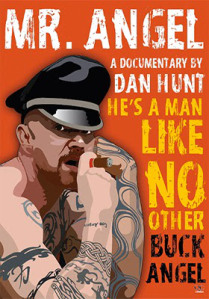
Mr. Angel (2011)
Scott's Comments:
When preparing for this course, I asked a table of mostly FTM (Female to Male) transgendered people at Fiesta Cafe what their favorite transgendered movie was. Their reply was immediate, Mr. Angel. If you don't know much about transgendered issues, this documentary will be a real eye-opener. The title character, Buck Angel, is a self-made porn star turned transgendered activist. Both he, and his wife, are absolutely fascinating. Expect a lot of humor and complete candor, including full frontal FTM transgendered nudity.
Scott's Final Comment:
By the way, where is Brokeback Mountain on these lists?
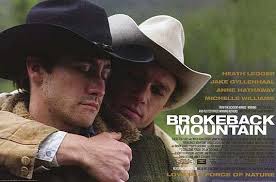
We simply assumed everyone has seen it. It is, after all, one of the most famous and highest grossing gay-themed films of all time and Number 1 on The Advocate magazine's
The Top 175 Essential Films of All Time for LGBT Viewers. If you happened to be stationed on an Antarctic Scientific Research Station for the entire late 2000's, go out and rent a copy, buy a new box of tissues, call up a friend to come over, and watch a movie that truly deserves all the accolades it has received.
Out of the Closet - LGBTQ Portrayals in Movies After the Stonewall Riots (1969)
Osher Lifelong Learning
Institute
University of Illinois, Urbana-Champaign
Connie Hossier, Instructor
Scott Badman,
Instructor